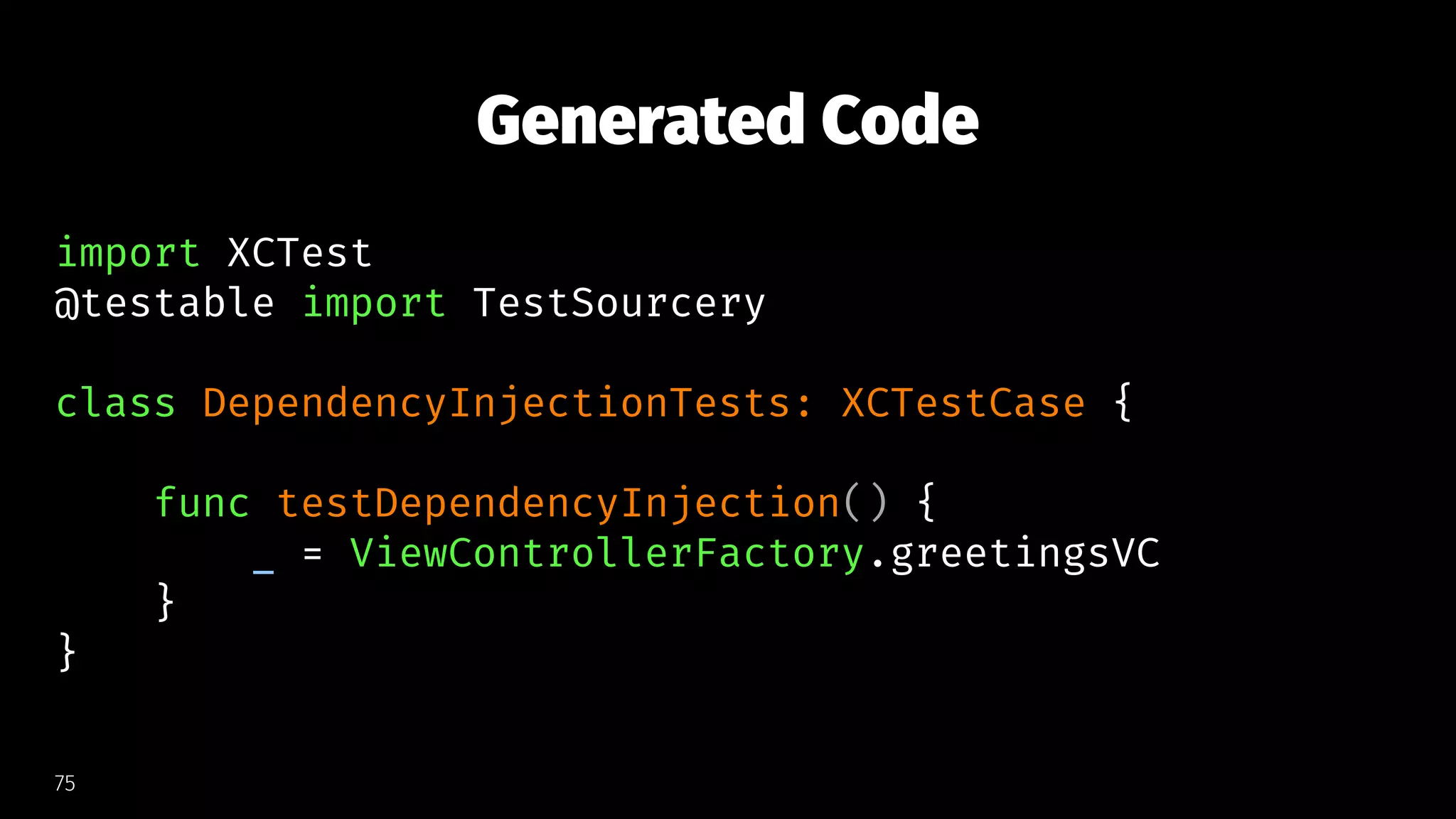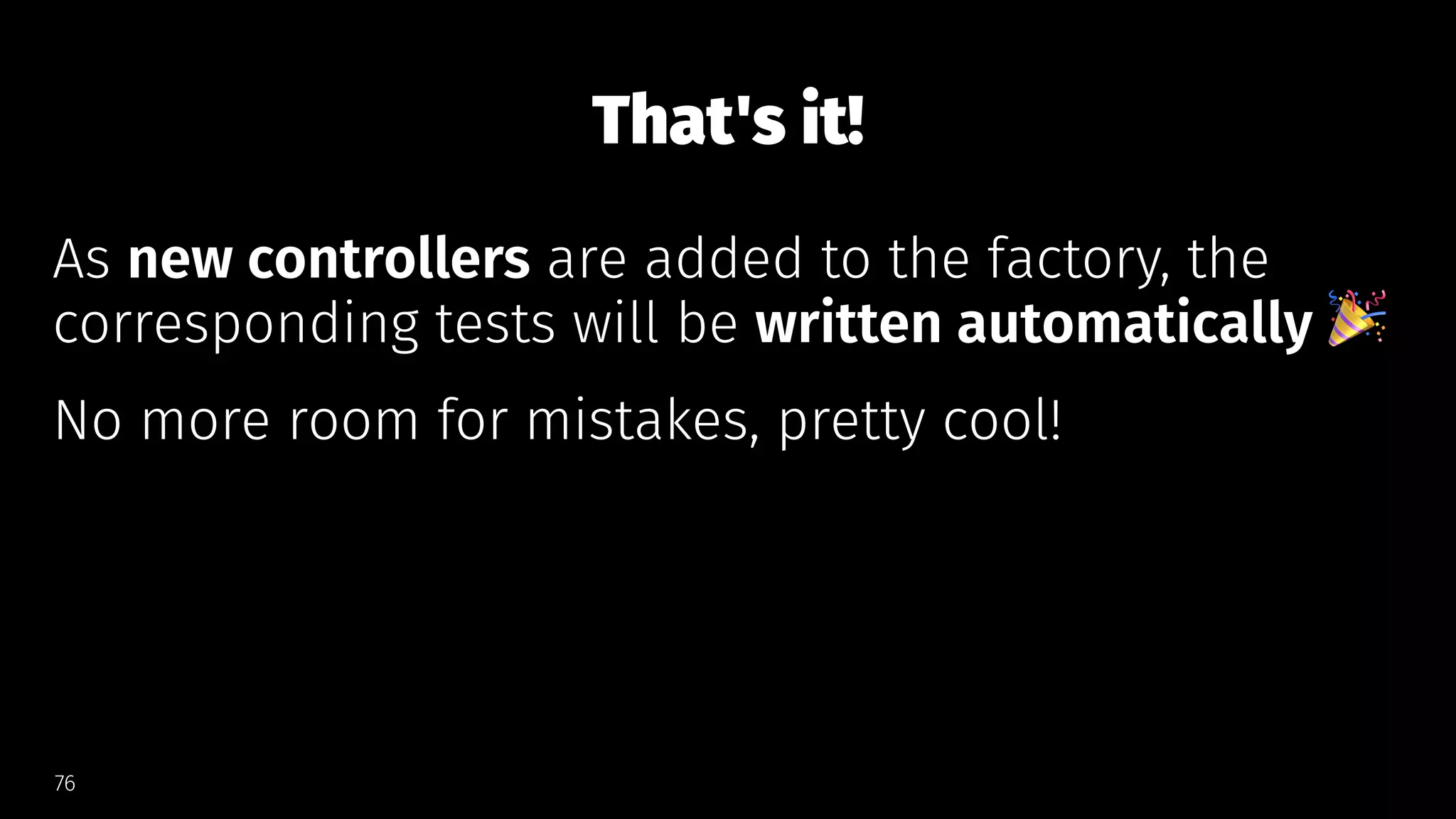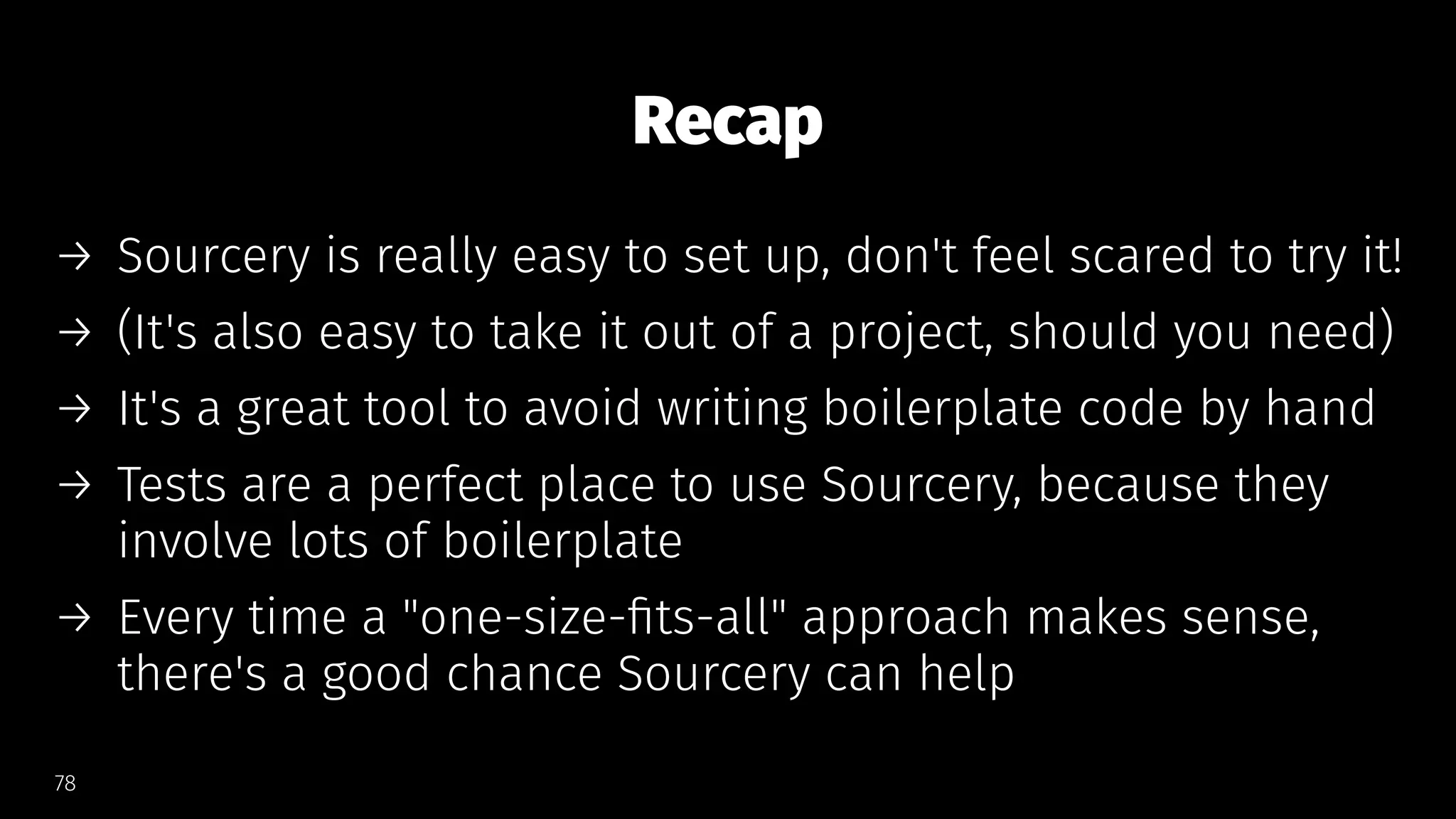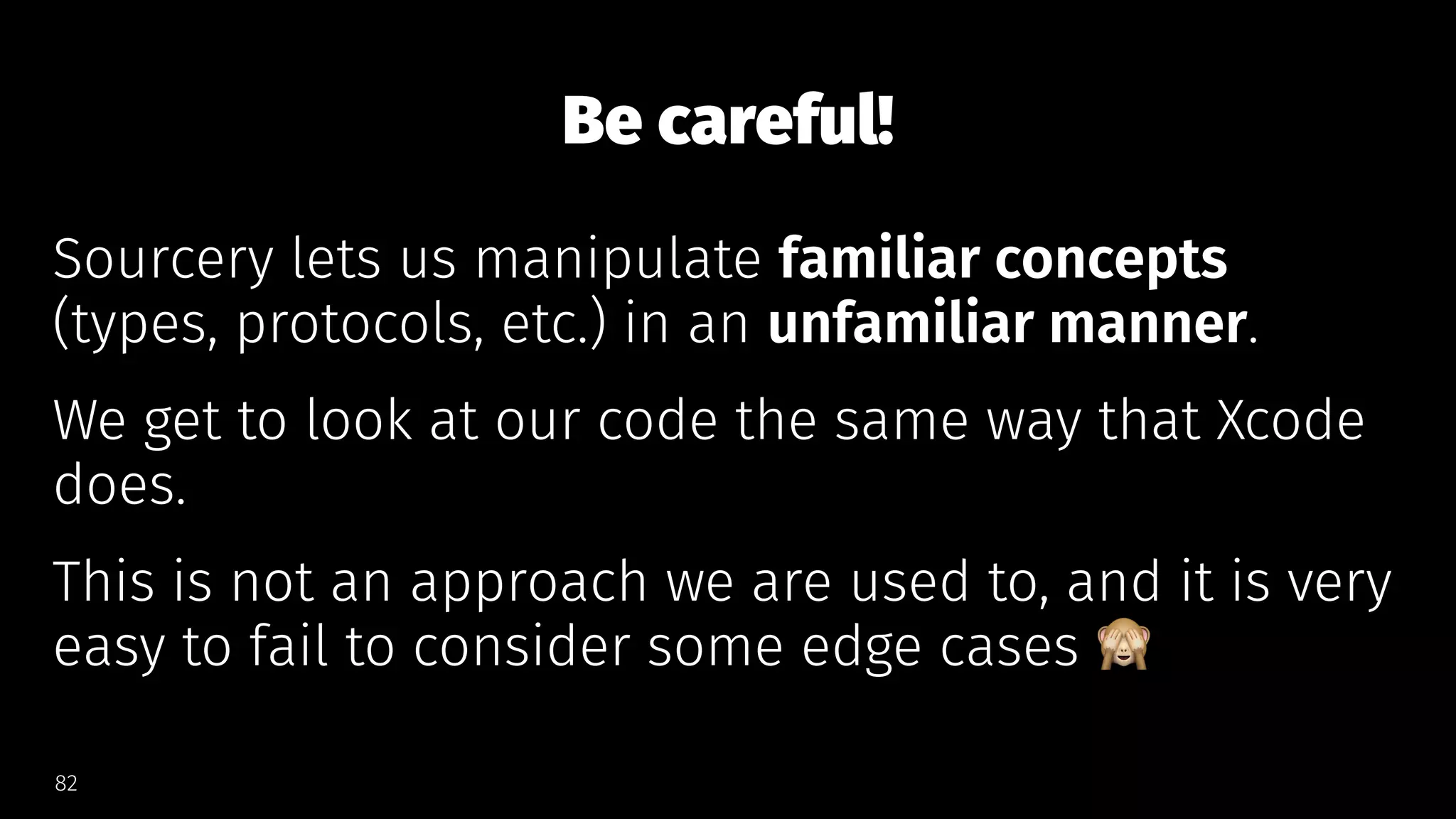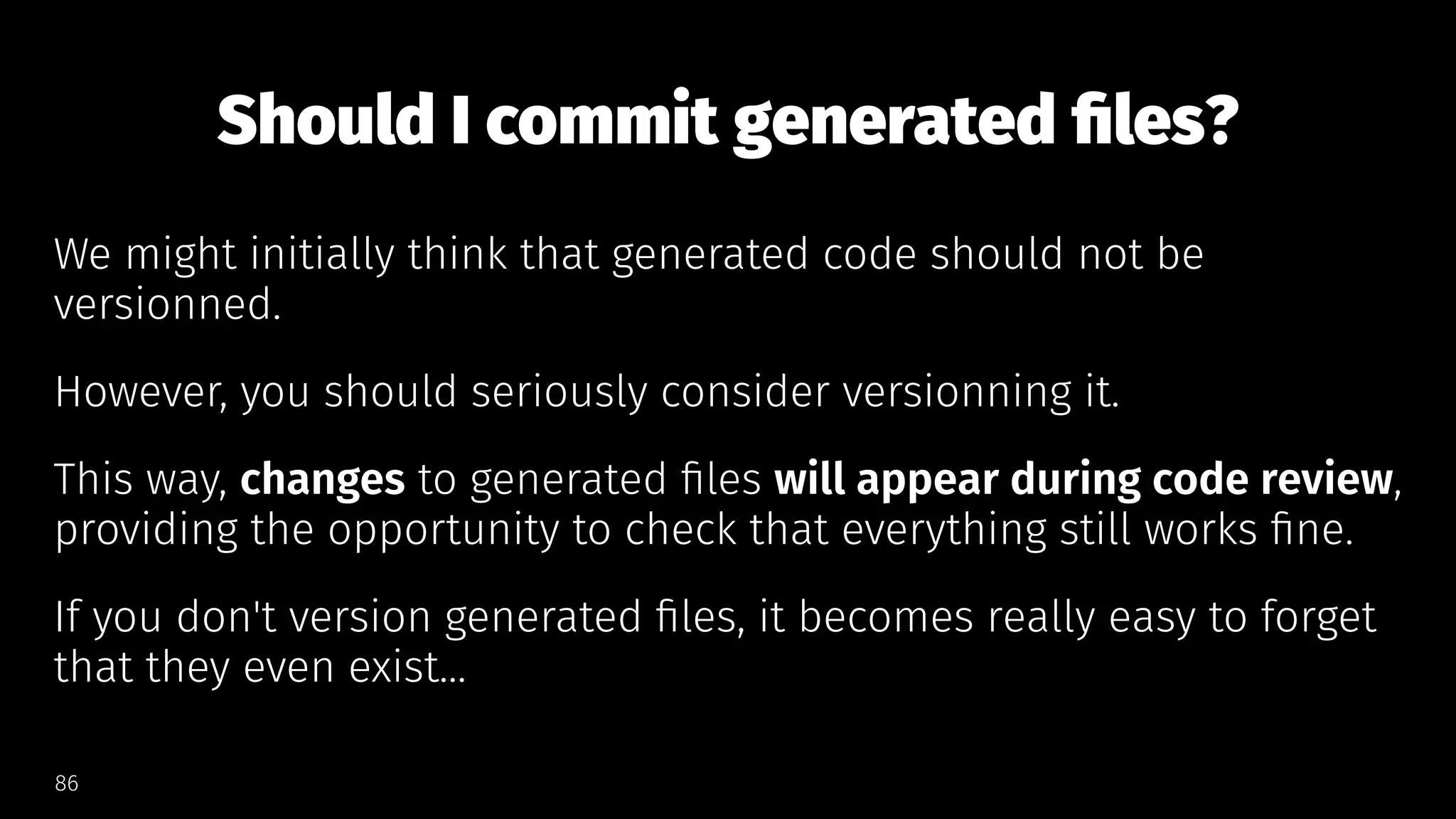The document provides an overview of Sourcery, a code generator for Swift that automates boilerplate code generation, especially for testing. It details the setup process, including integrating templates and generated code, and demonstrates how to create tests with reduced boilerplate using Sourcery. The document also emphasizes the importance of thorough testing for code and dependencies while cautioning about the complexities of using Sourcery effectively.



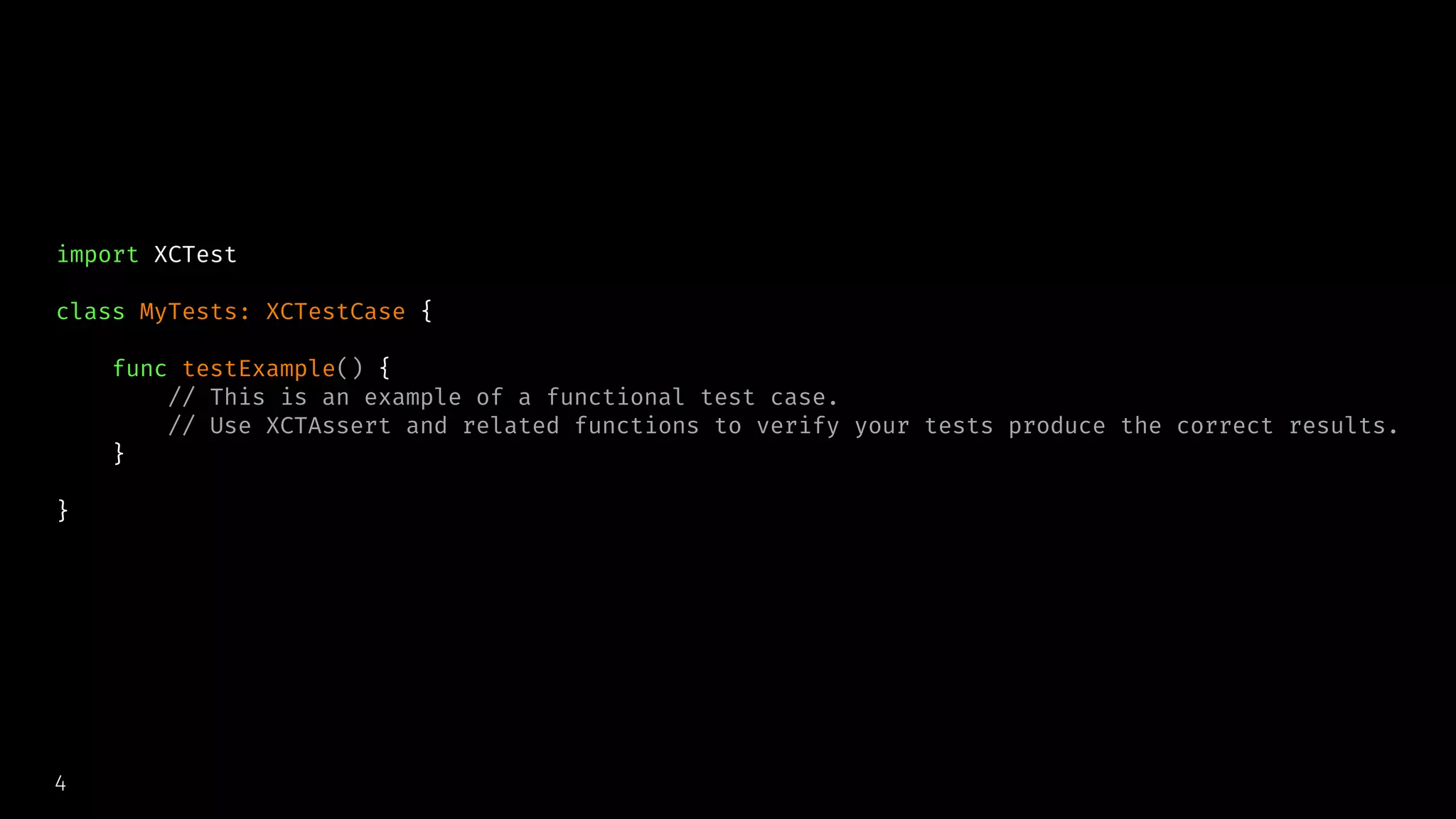




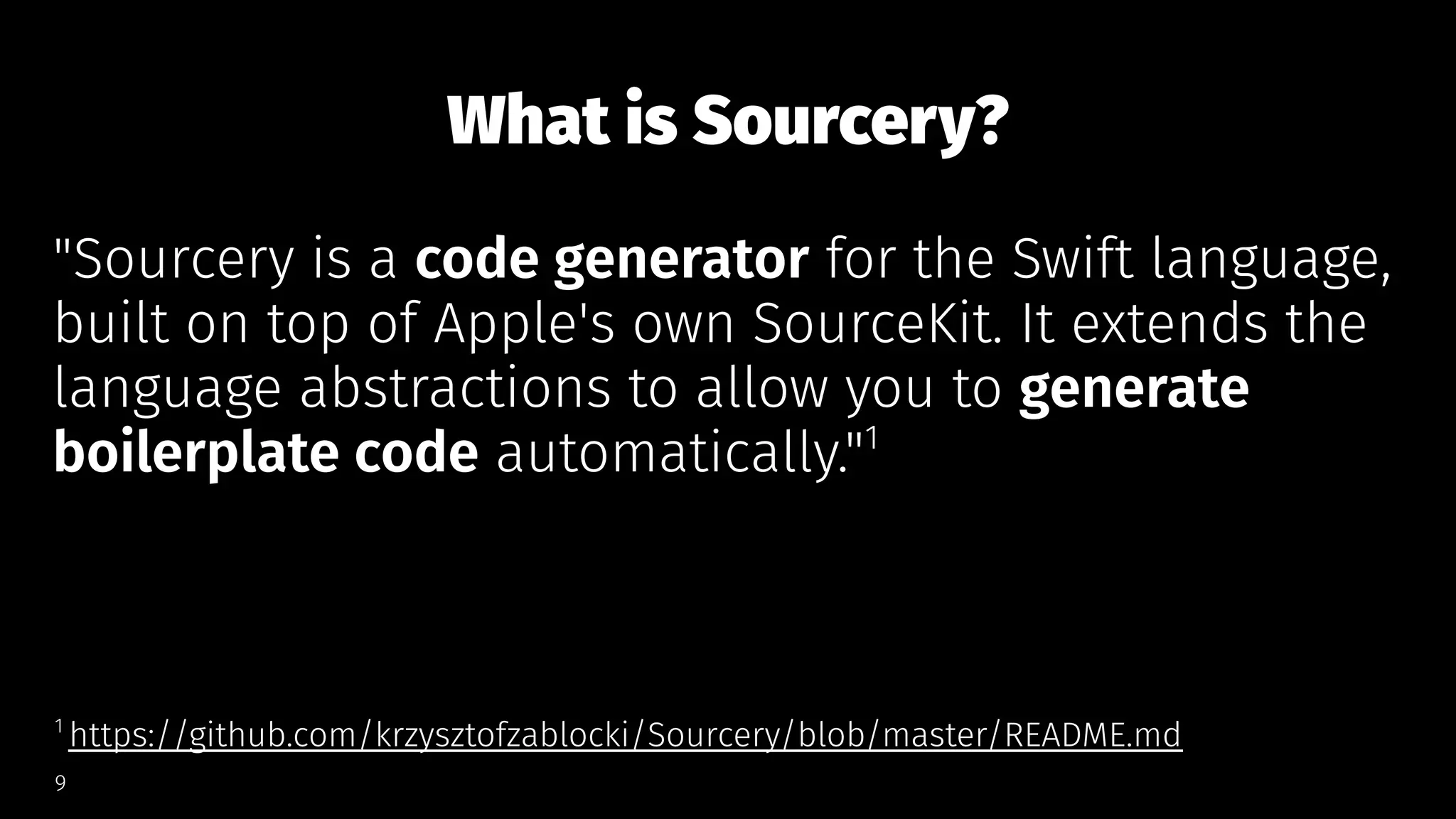

![What can we do with Sourcery?
enum Direction {
case up
case right
case down
case left
}
Direction.allCases // [.up, .right, .down, .left]
11](https://image.slidesharecdn.com/mobos-2020-taking-the-boilerplate-out-of-your-tests-with-sourcery-200531084734/75/Taking-the-boilerplate-out-of-your-tests-with-Sourcery-11-2048.jpg)
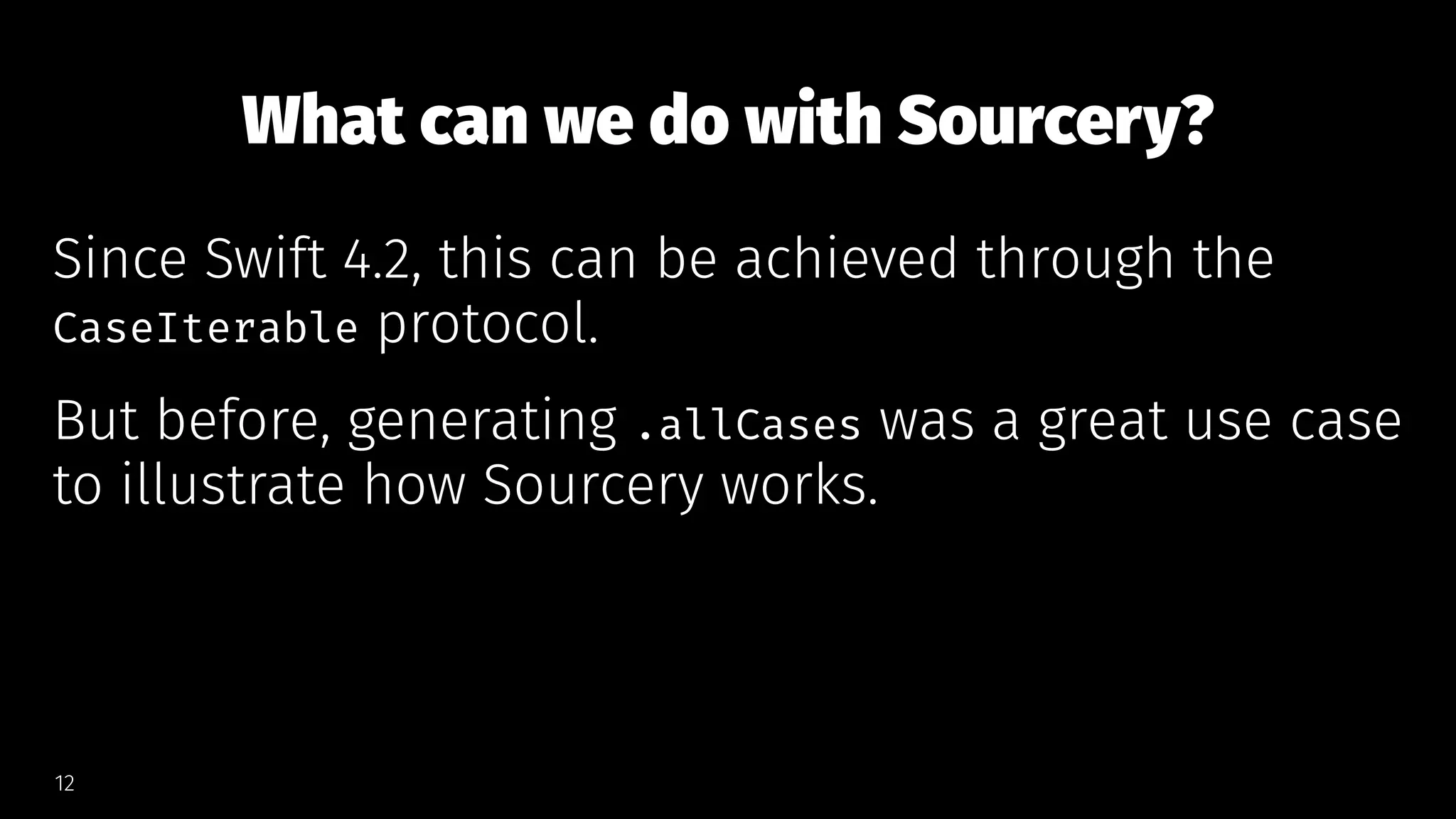
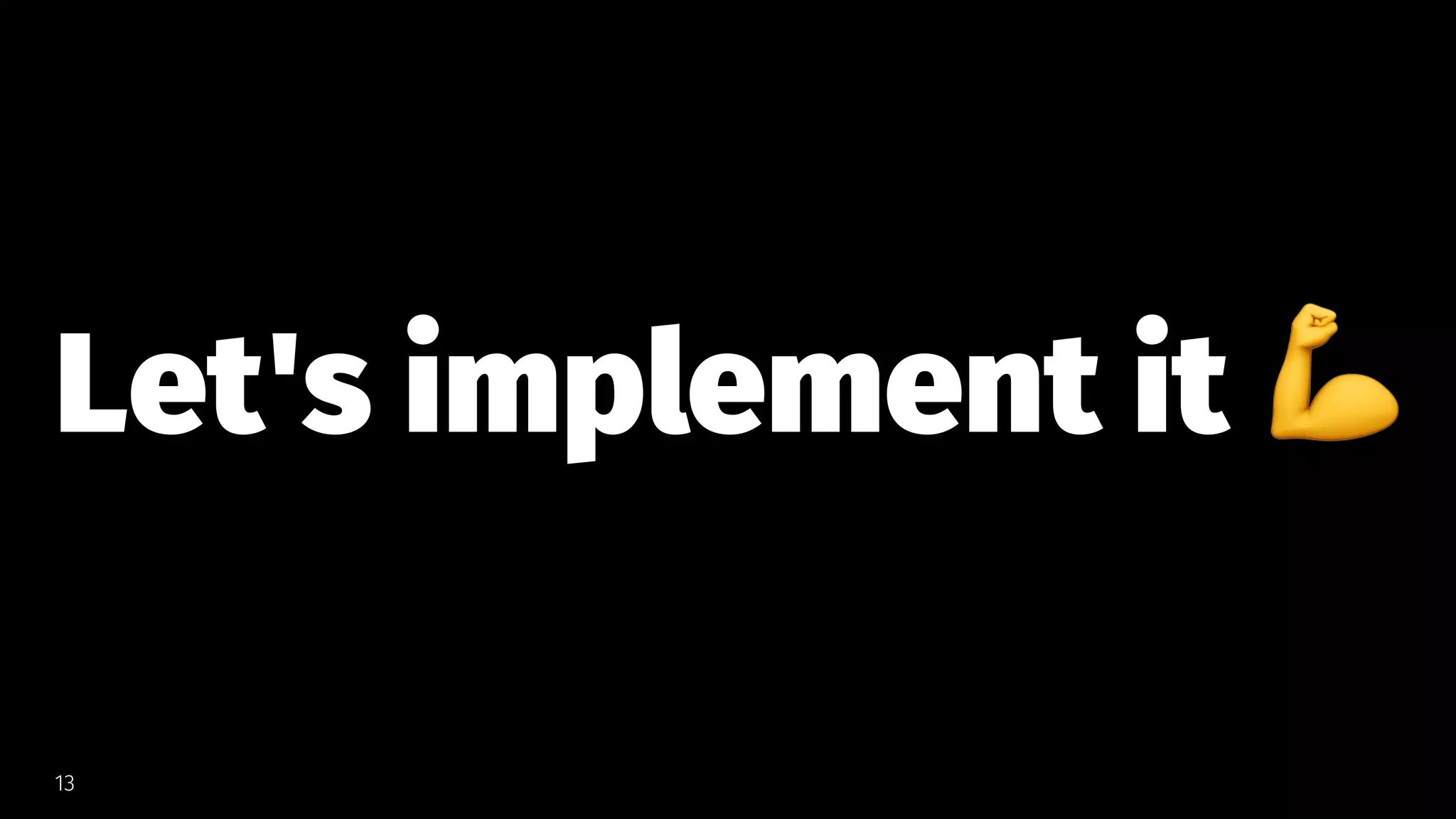


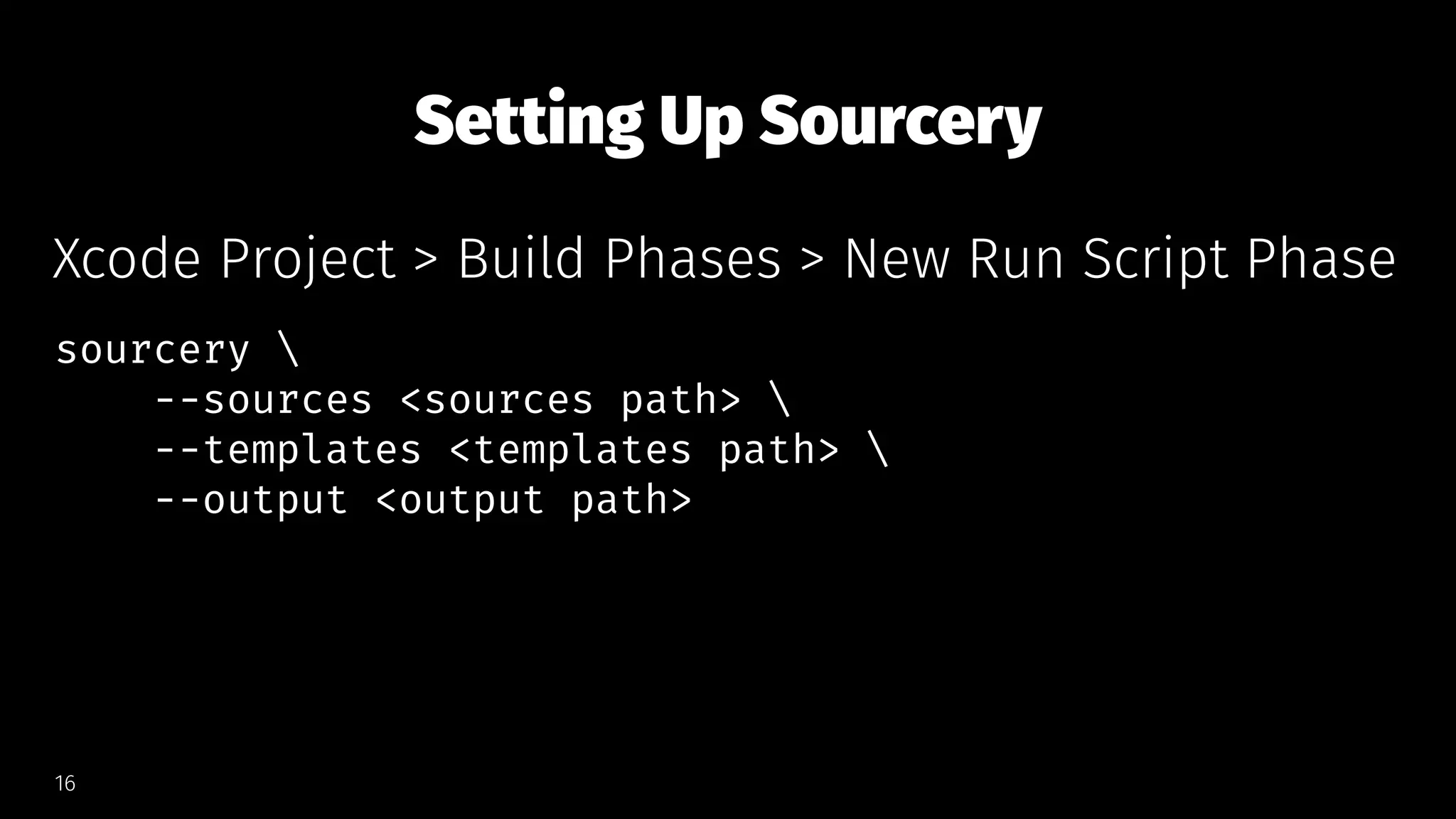

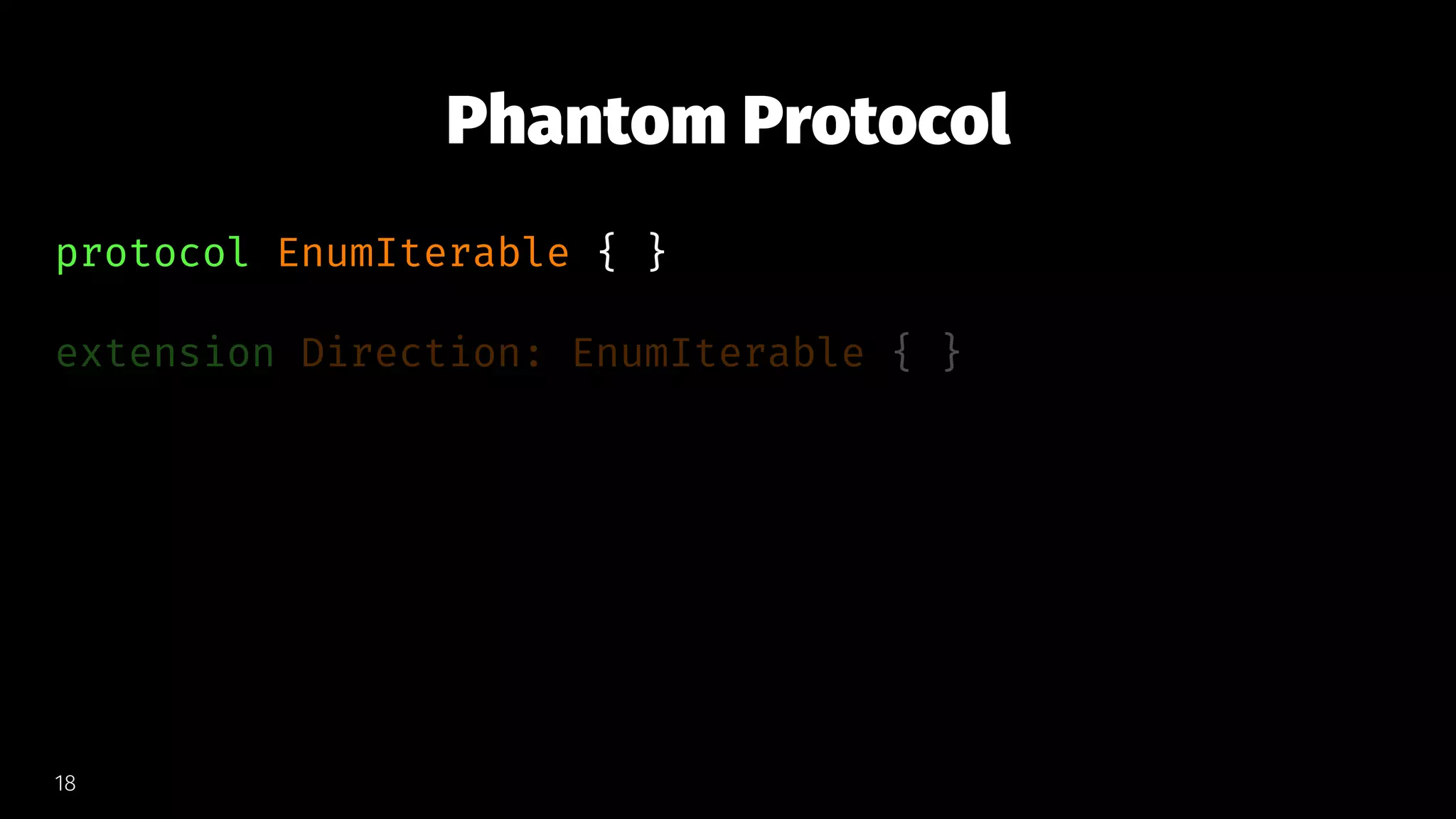

![Sourcery Template
{% for enum in types.implementing.EnumIterable|enum %}
{% if not enum.hasAssociatedValues %}
{{ enum.accessLevel }} extension {{ enum.name }} {
static let allCases: [{{ enum.name }}] = [
{% for case in enum.cases %}
.{{ case.name }} {% if not forloop.last %} , {% endif %}
{% endfor %}
]
}
{% endif %}
{% endfor %}
20](https://image.slidesharecdn.com/mobos-2020-taking-the-boilerplate-out-of-your-tests-with-sourcery-200531084734/75/Taking-the-boilerplate-out-of-your-tests-with-Sourcery-20-2048.jpg)
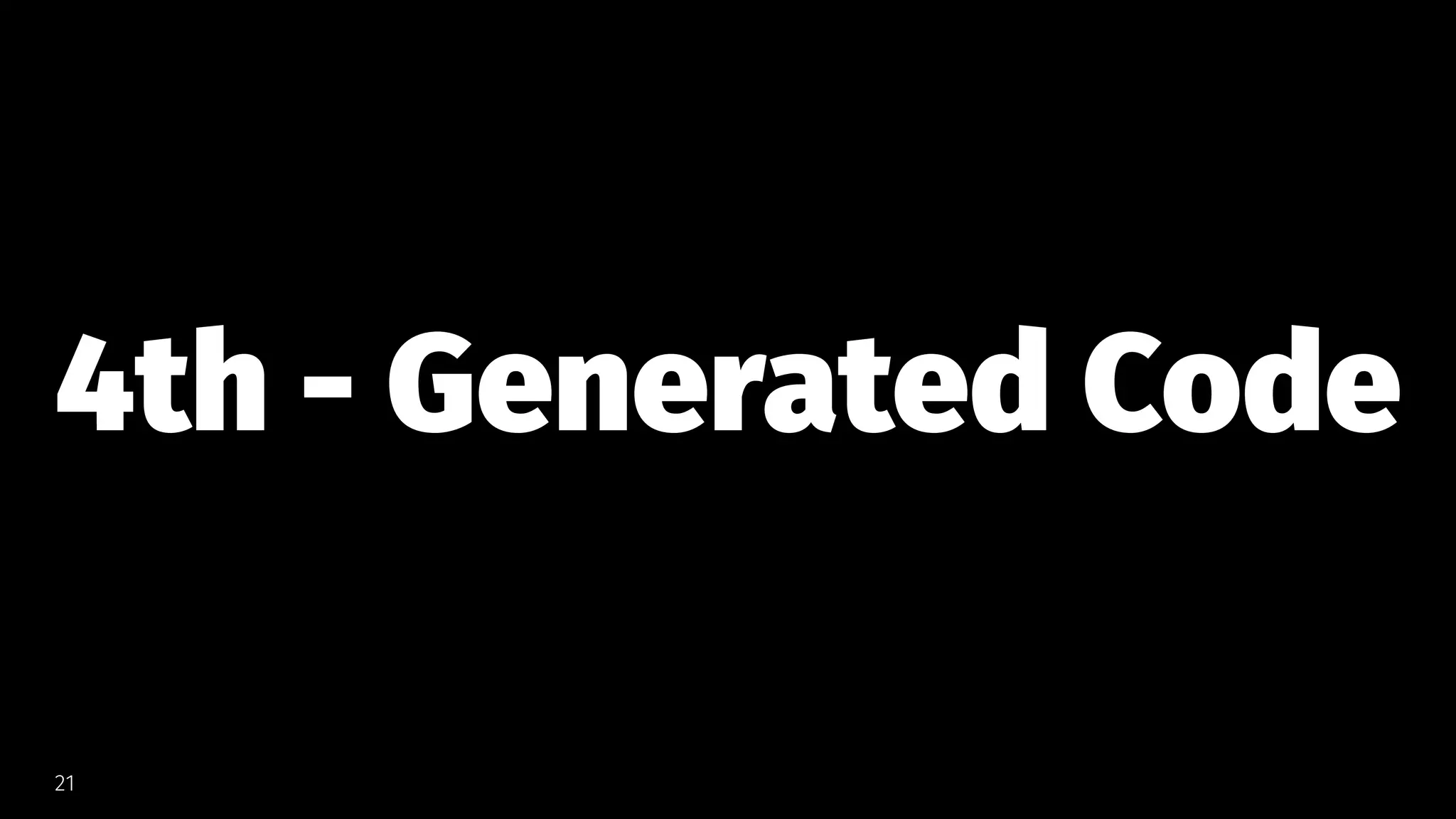
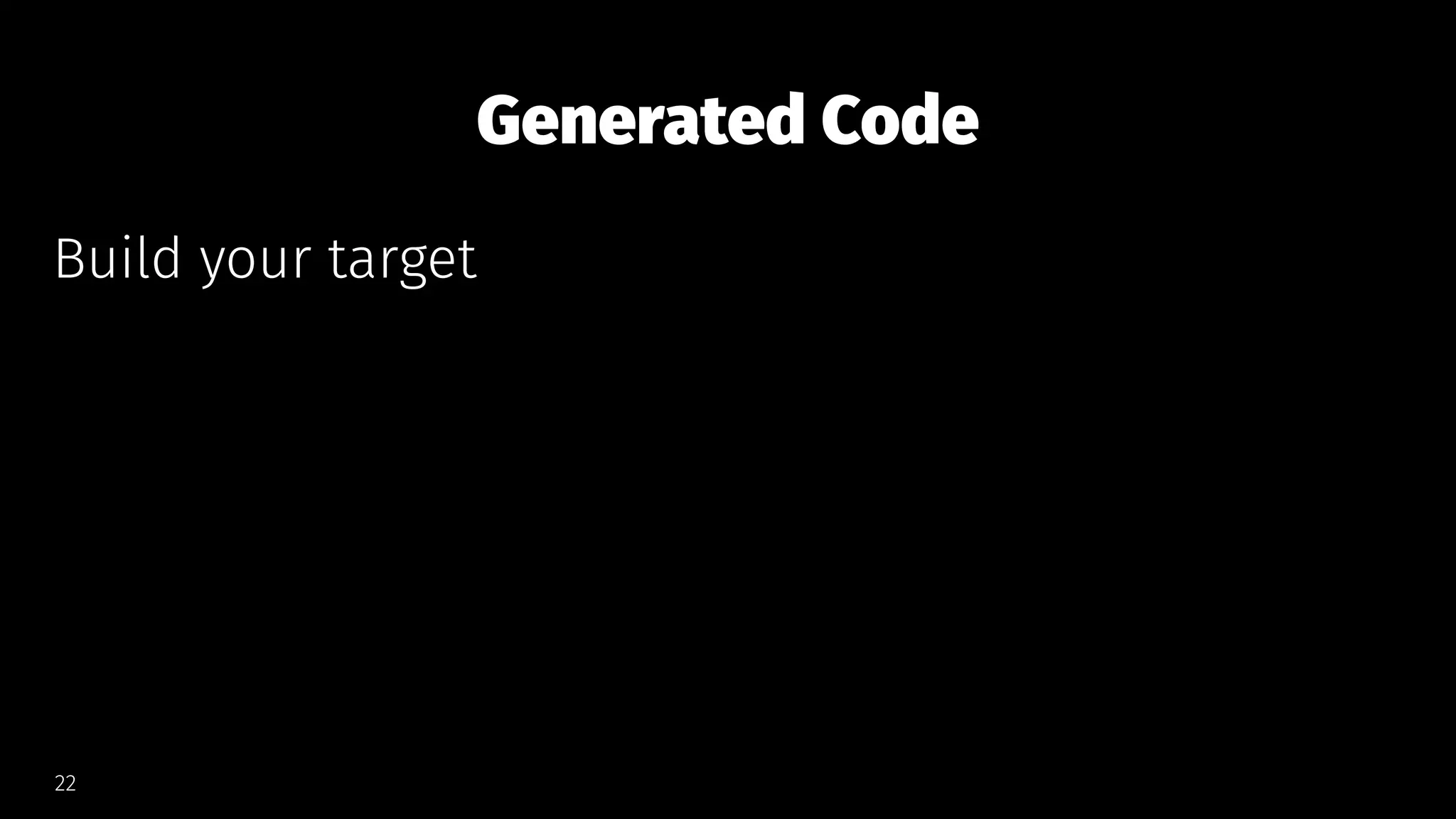
![Generated Code
internal extension Direction {
static let allCases: [Direction] = [
.up ,
.right ,
.down ,
.left
]
}
23](https://image.slidesharecdn.com/mobos-2020-taking-the-boilerplate-out-of-your-tests-with-sourcery-200531084734/75/Taking-the-boilerplate-out-of-your-tests-with-Sourcery-23-2048.jpg)
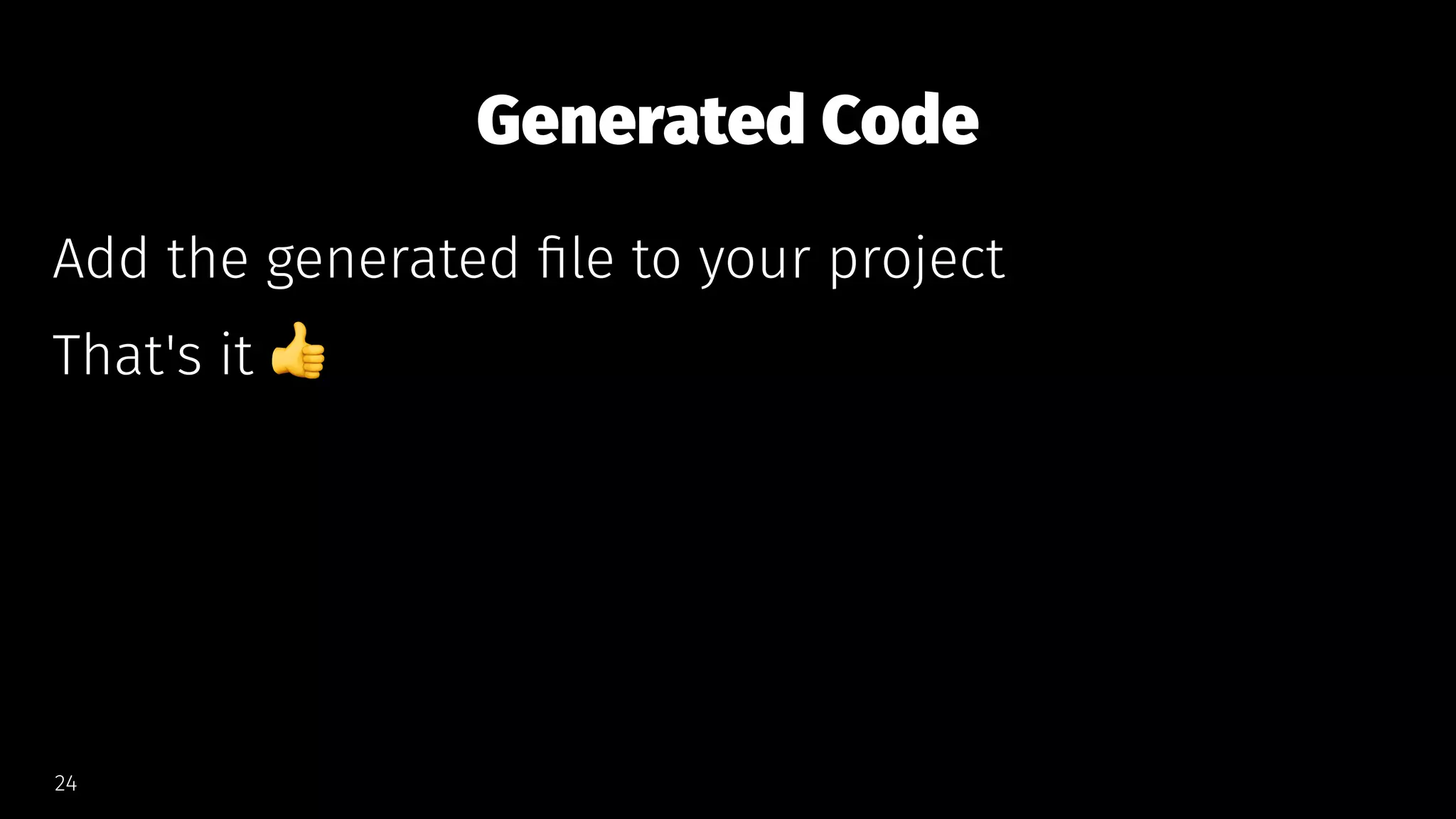

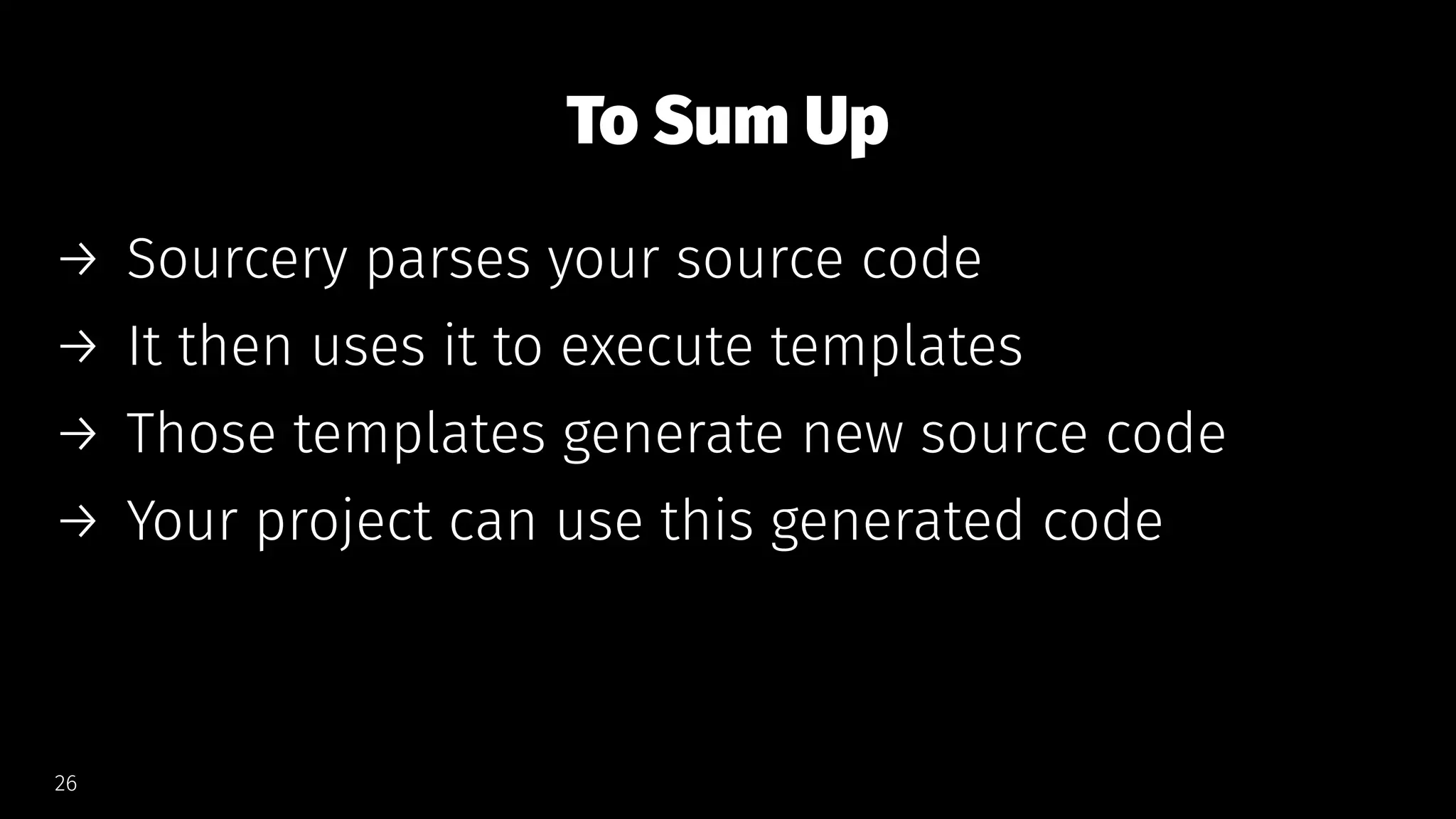


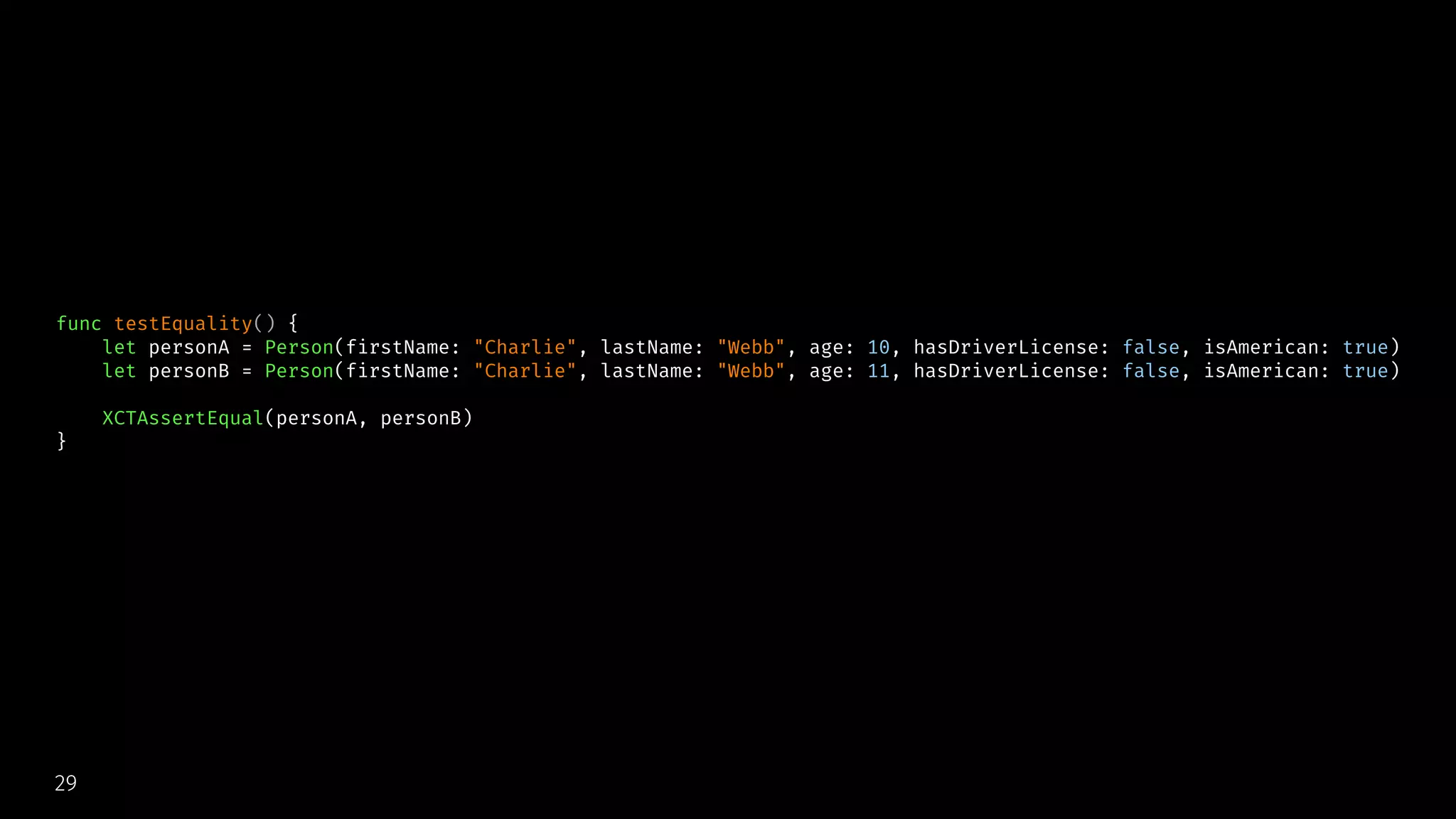
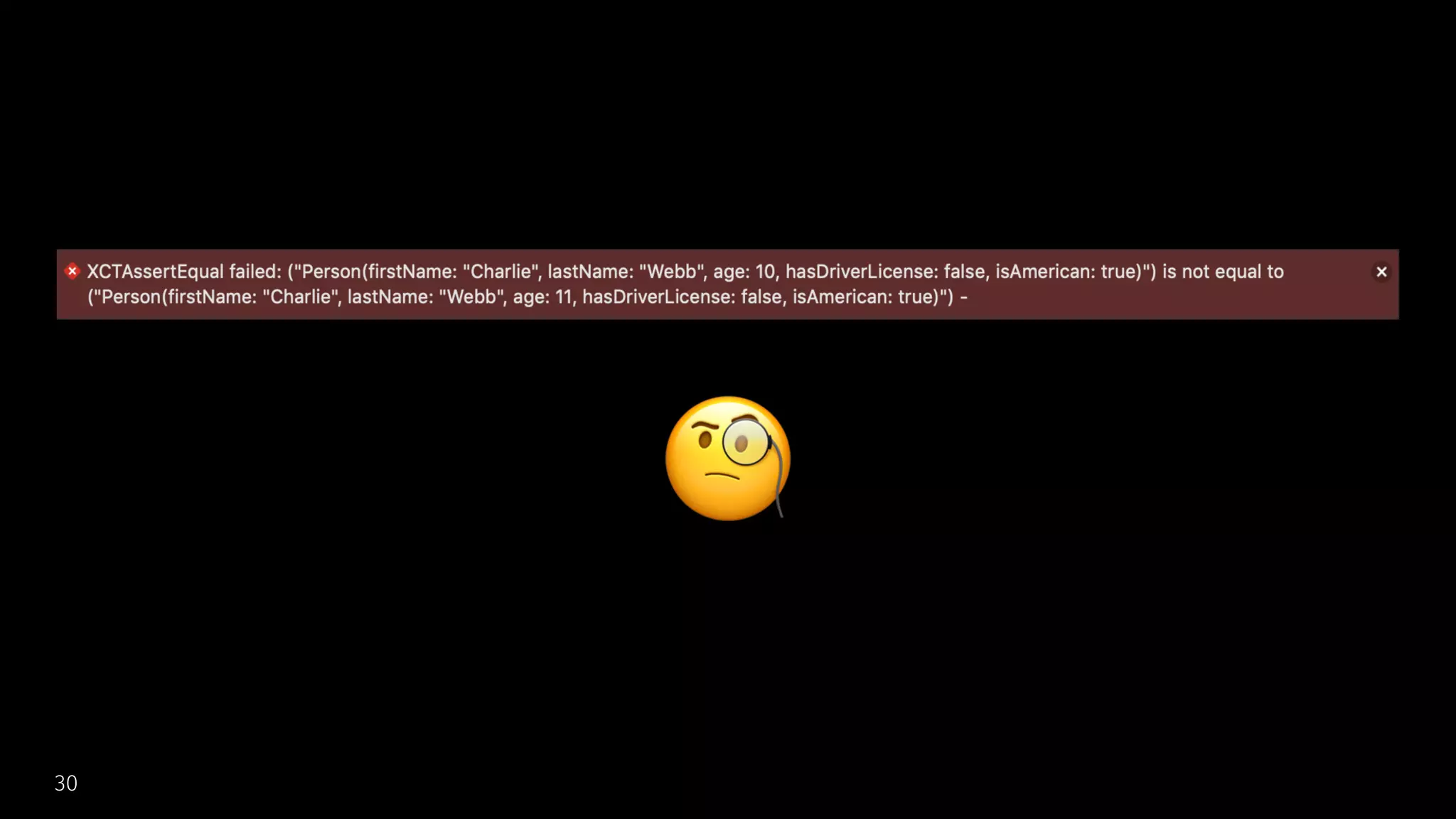

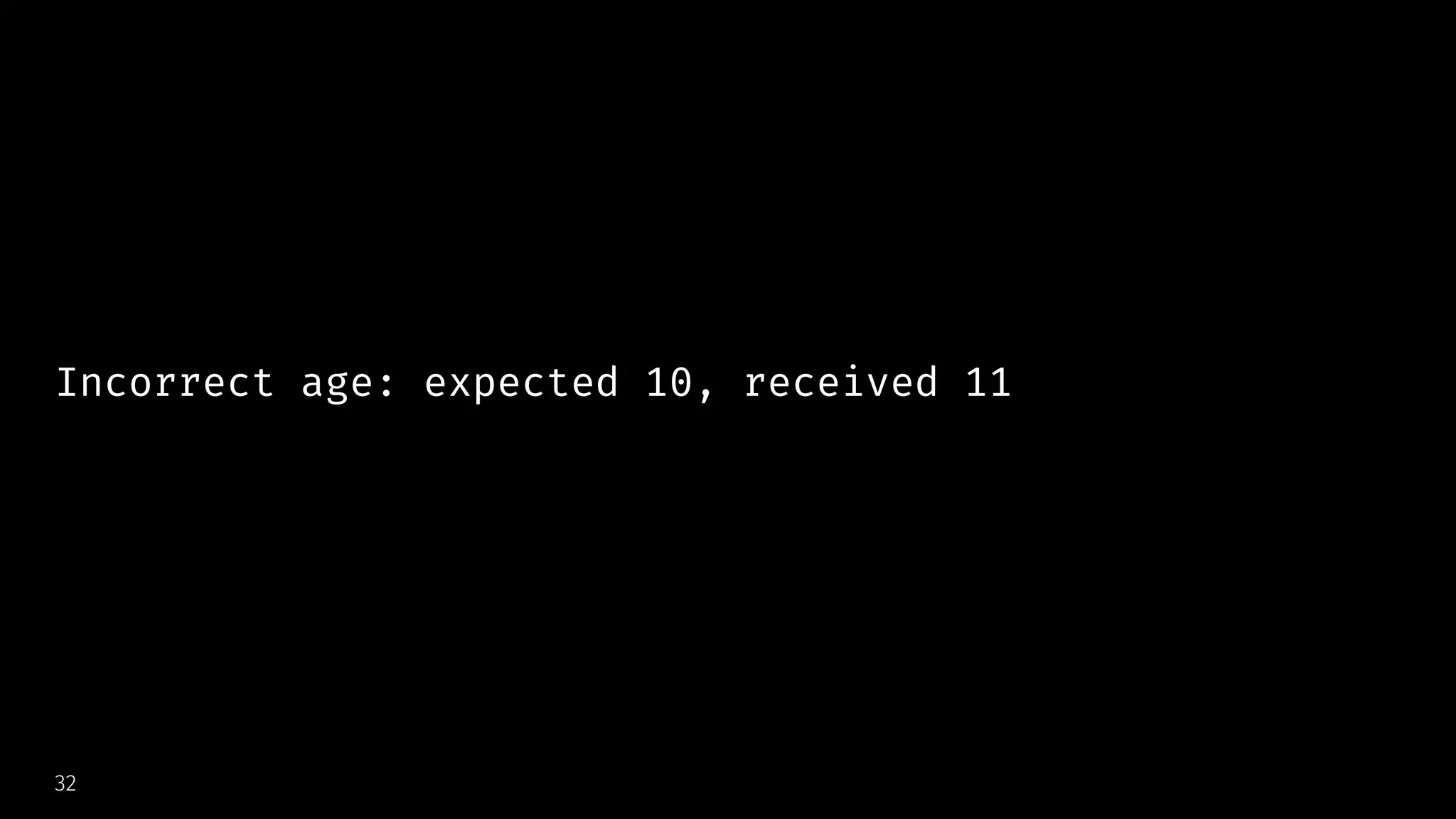

![internal extension Person {
func diff(against other: Person) -> String {
var result = [String]()
if self.firstName != other.firstName {
var diff = "Incorrect firstName: "
diff += "expected (self.firstName), "
diff += "received (other.firstName)"
result.append(diff)
}
if self.lastName != other.lastName {
var diff = "Incorrect lastName: "
diff += "expected (self.lastName), "
diff += "received (other.lastName)"
result.append(diff)
}
if self.age != other.age {
var diff = "Incorrect age: "
diff += "expected (self.age), "
diff += "received (other.age)"
result.append(diff)
}
if self.hasDriverLicense != other.hasDriverLicense {
var diff = "Incorrect hasDriverLicense: "
diff += "expected (self.hasDriverLicense), "
diff += "received (other.hasDriverLicense)"
result.append(diff)
}
if self.isAmerican != other.isAmerican {
var diff = "Incorrect isAmerican: "
diff += "expected (self.isAmerican), "
diff += "received (other.isAmerican)"
result.append(diff)
}
return result.joined(separator: ". ")
}
}
34](https://image.slidesharecdn.com/mobos-2020-taking-the-boilerplate-out-of-your-tests-with-sourcery-200531084734/75/Taking-the-boilerplate-out-of-your-tests-with-Sourcery-34-2048.jpg)


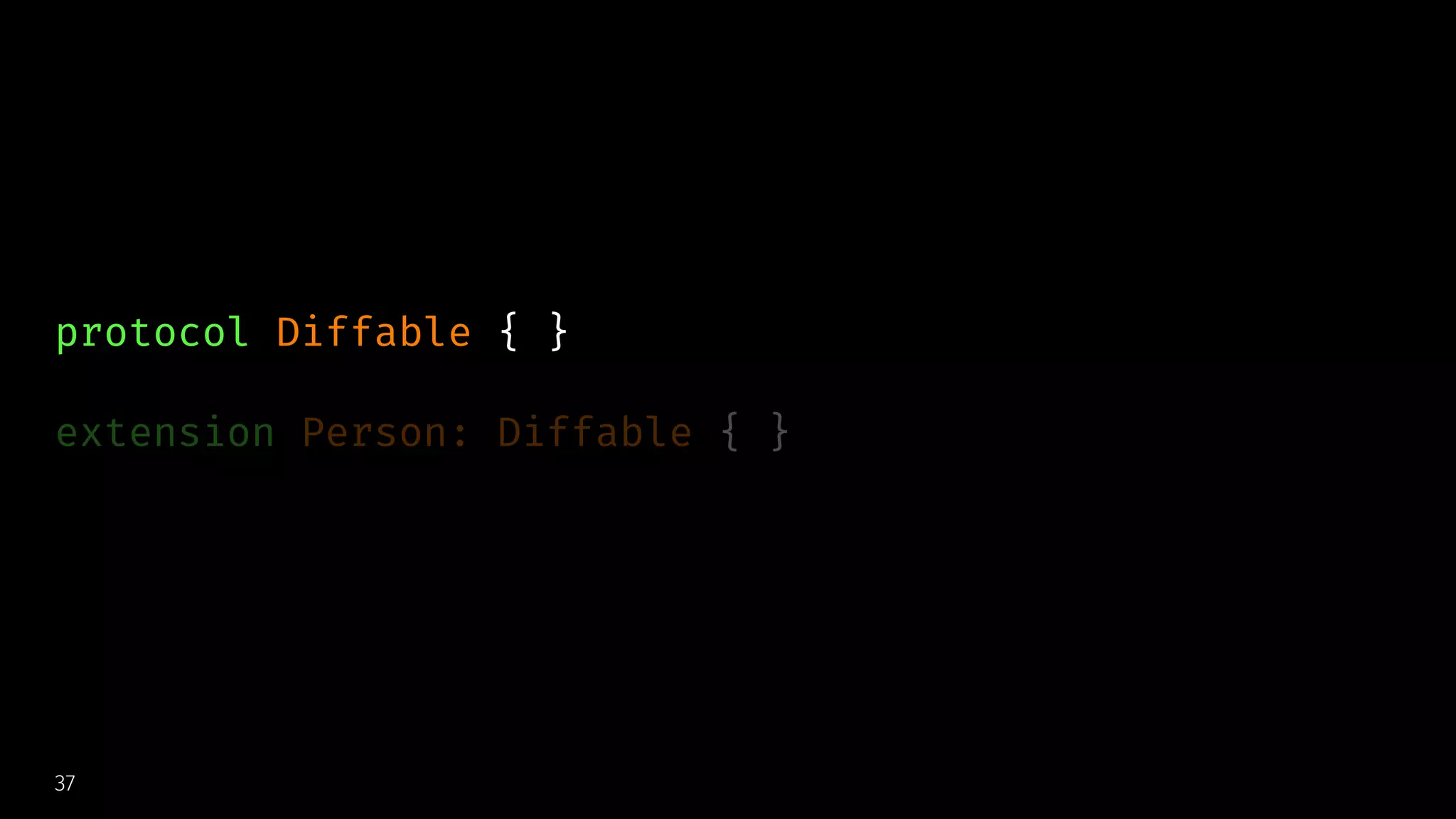

![{% for type in types.implementing.Diffable %}
{{ type.accessLevel }} extension {{ type.name }} {
func diff(against other: {{ type.name }}) -> String {
var result = [String]()
{% for variable in type.variables %}
if self.{{ variable.name }} != other.{{ variable.name }} {
var diff = "Incorrect {{ variable.name }}: "
diff += "expected (self.{{ variable.name }}), "
diff += "received (other.{{ variable.name }})"
result.append(diff)
}
{% endfor %}
return result.joined(separator: ". ")
}
}
{% endfor %}
39](https://image.slidesharecdn.com/mobos-2020-taking-the-boilerplate-out-of-your-tests-with-sourcery-200531084734/75/Taking-the-boilerplate-out-of-your-tests-with-Sourcery-39-2048.jpg)
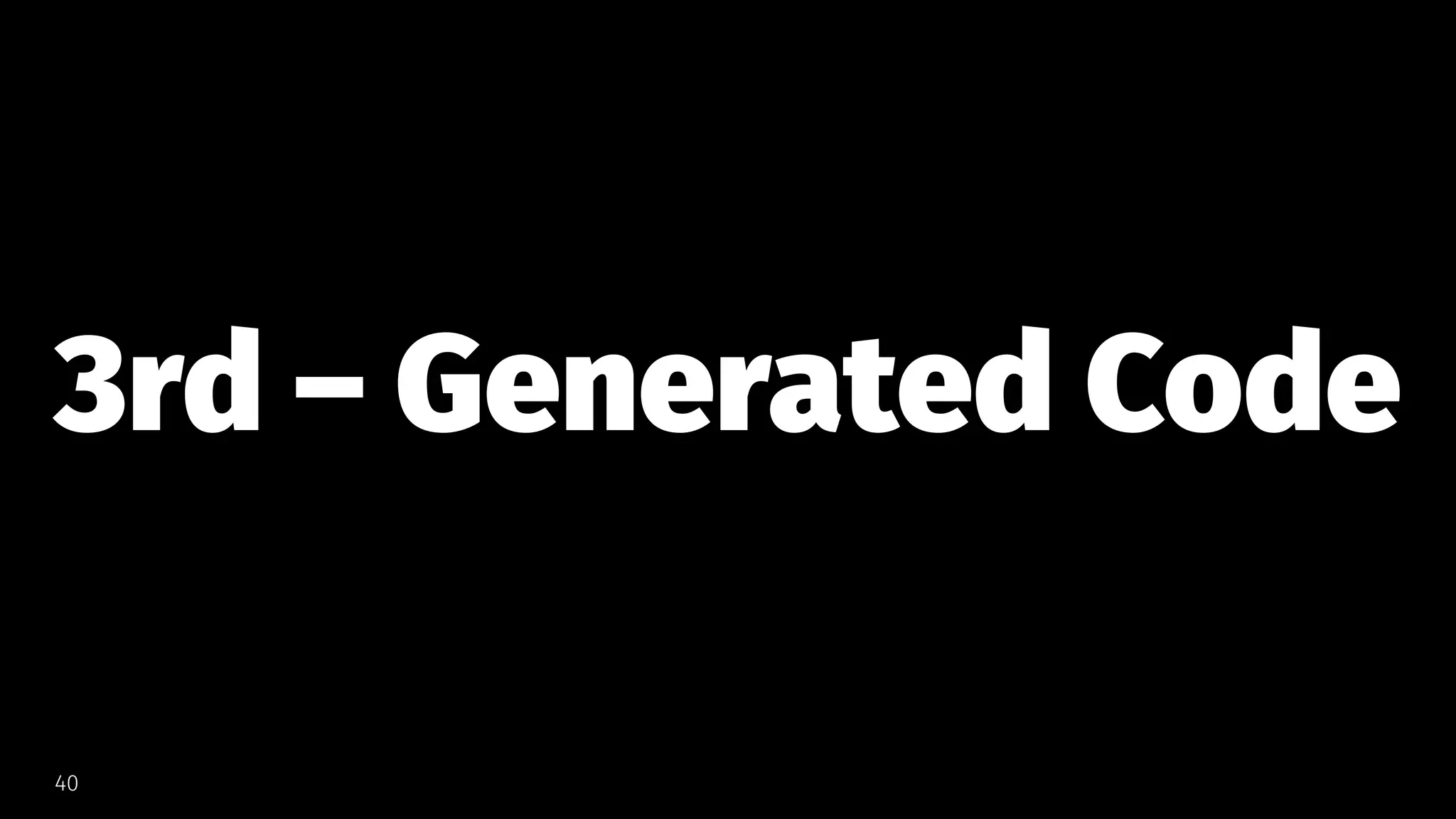
![internal extension Person {
func diff(against other: Person) -> String {
var result = [String]()
if self.firstName != other.firstName {
var diff = "Incorrect firstName: "
diff += "expected (self.firstName), "
diff += "received (other.firstName)"
result.append(diff)
}
if self.lastName != other.lastName {
var diff = "Incorrect lastName: "
diff += "expected (self.lastName), "
diff += "received (other.lastName)"
result.append(diff)
}
if self.age != other.age {
var diff = "Incorrect age: "
diff += "expected (self.age), "
diff += "received (other.age)"
result.append(diff)
}
if self.hasDriverLicense != other.hasDriverLicense {
var diff = "Incorrect hasDriverLicense: "
diff += "expected (self.hasDriverLicense), "
diff += "received (other.hasDriverLicense)"
result.append(diff)
}
if self.isAmerican != other.isAmerican {
var diff = "Incorrect isAmerican: "
diff += "expected (self.isAmerican), "
diff += "received (other.isAmerican)"
result.append(diff)
}
return result.joined(separator: ". ")
}
}
41](https://image.slidesharecdn.com/mobos-2020-taking-the-boilerplate-out-of-your-tests-with-sourcery-200531084734/75/Taking-the-boilerplate-out-of-your-tests-with-Sourcery-41-2048.jpg)

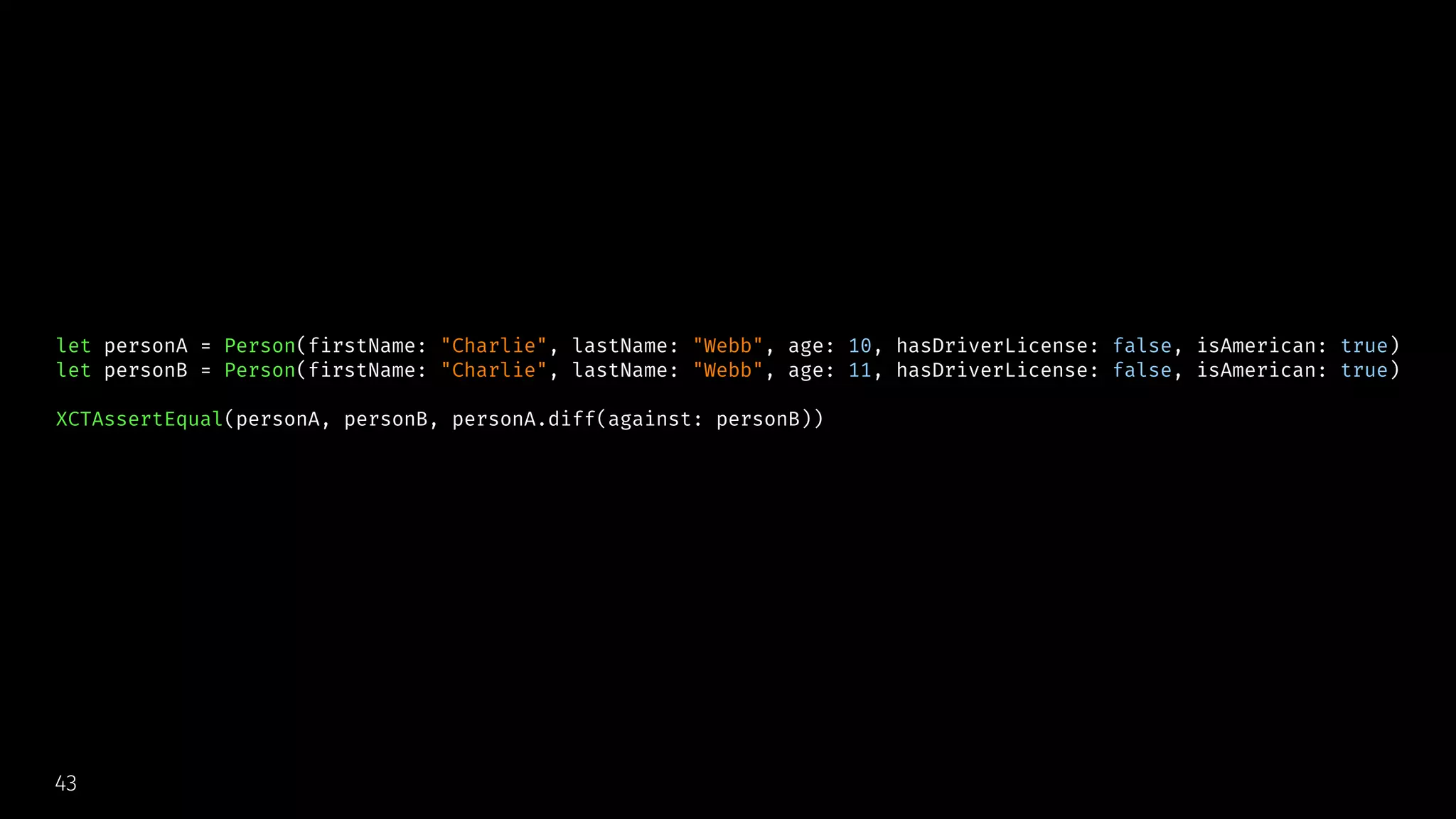
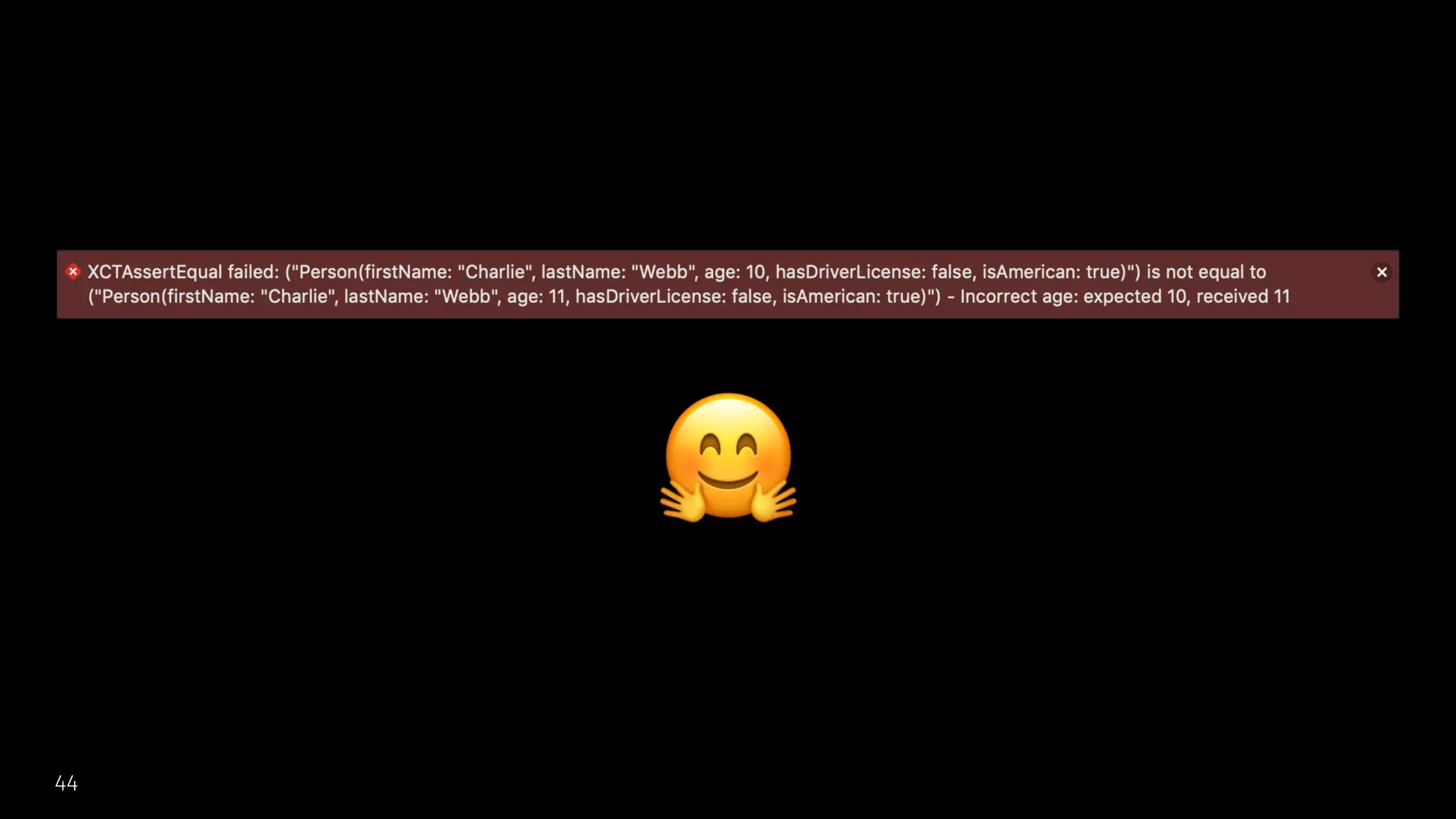

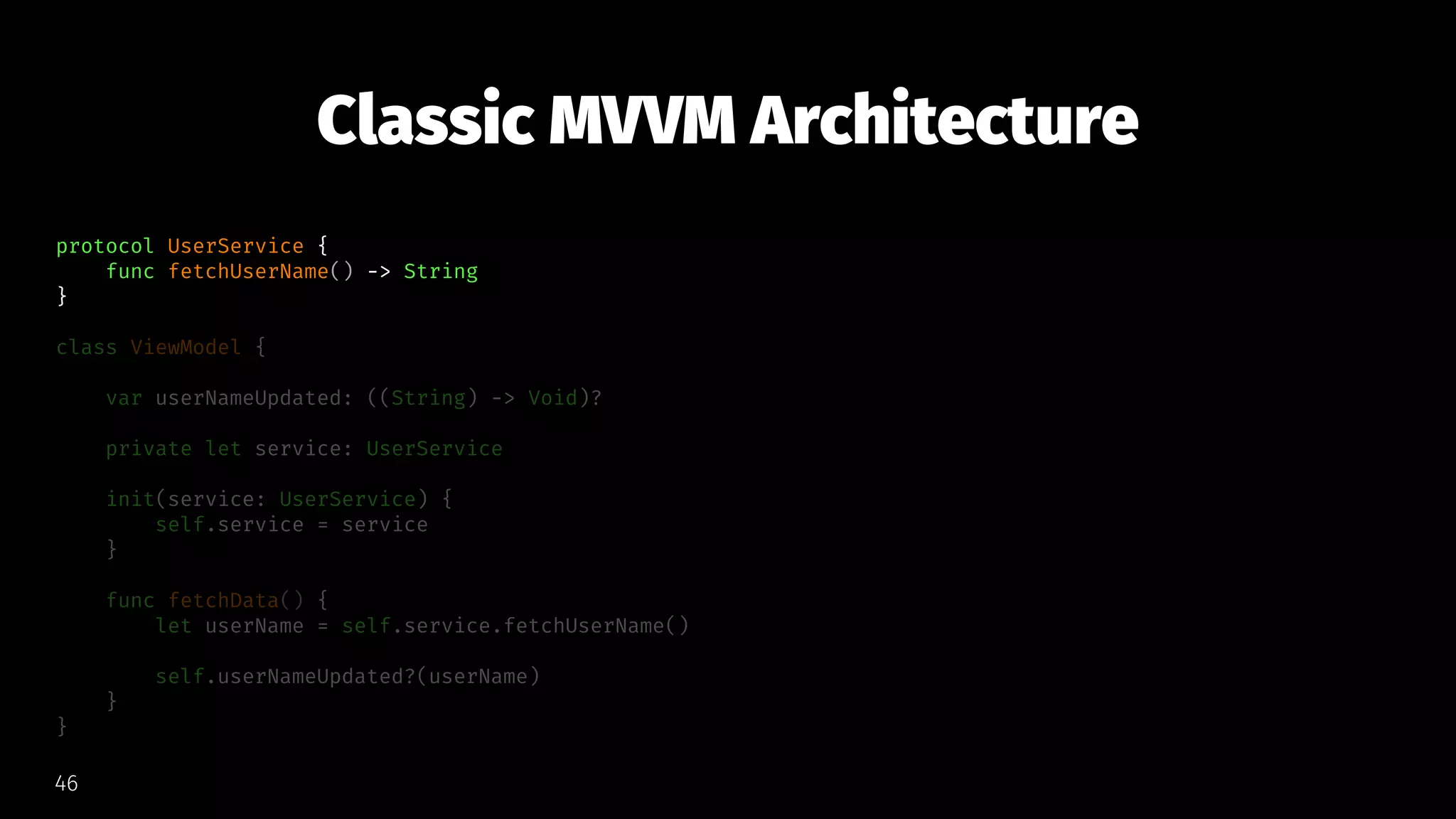
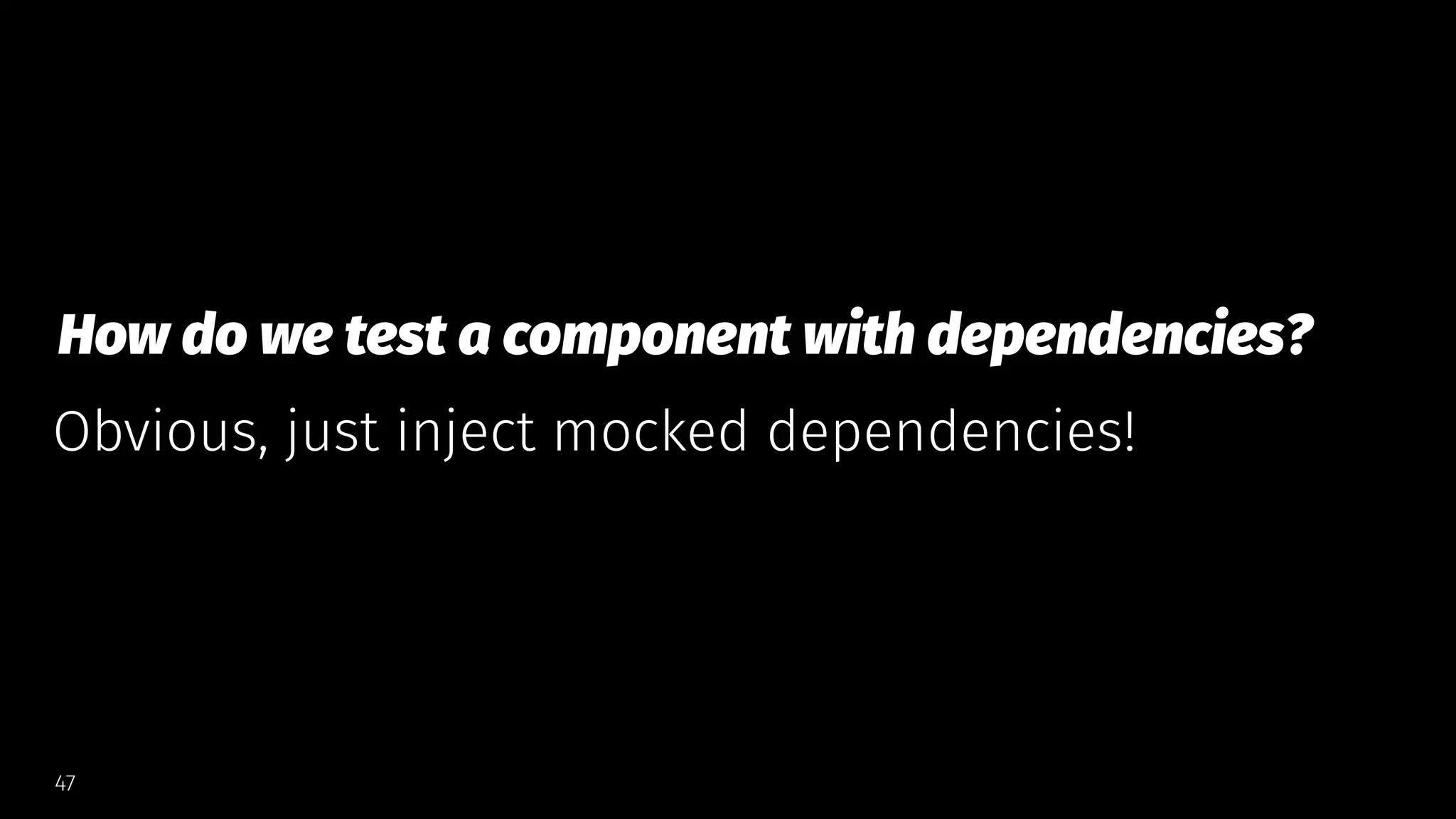
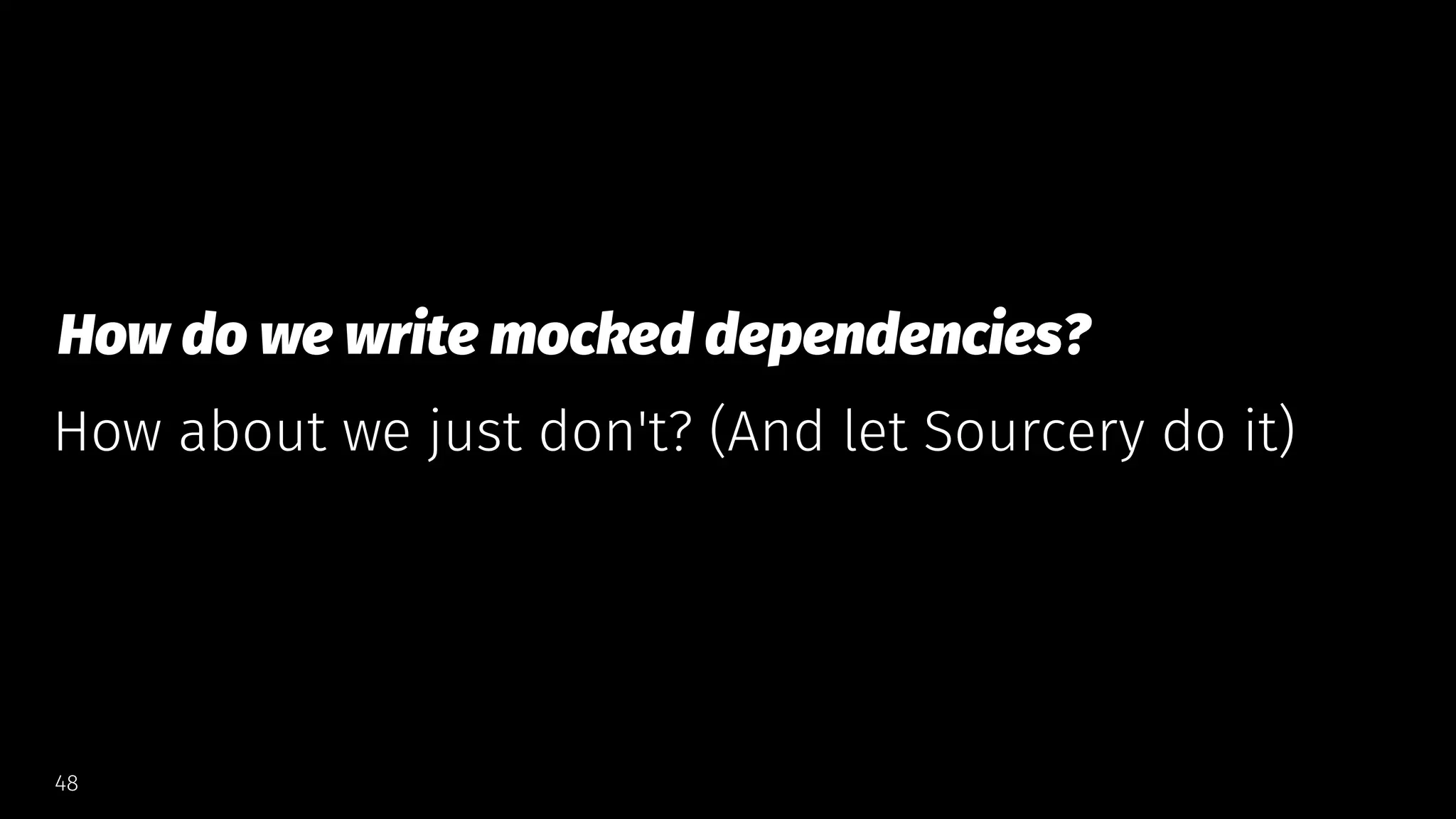
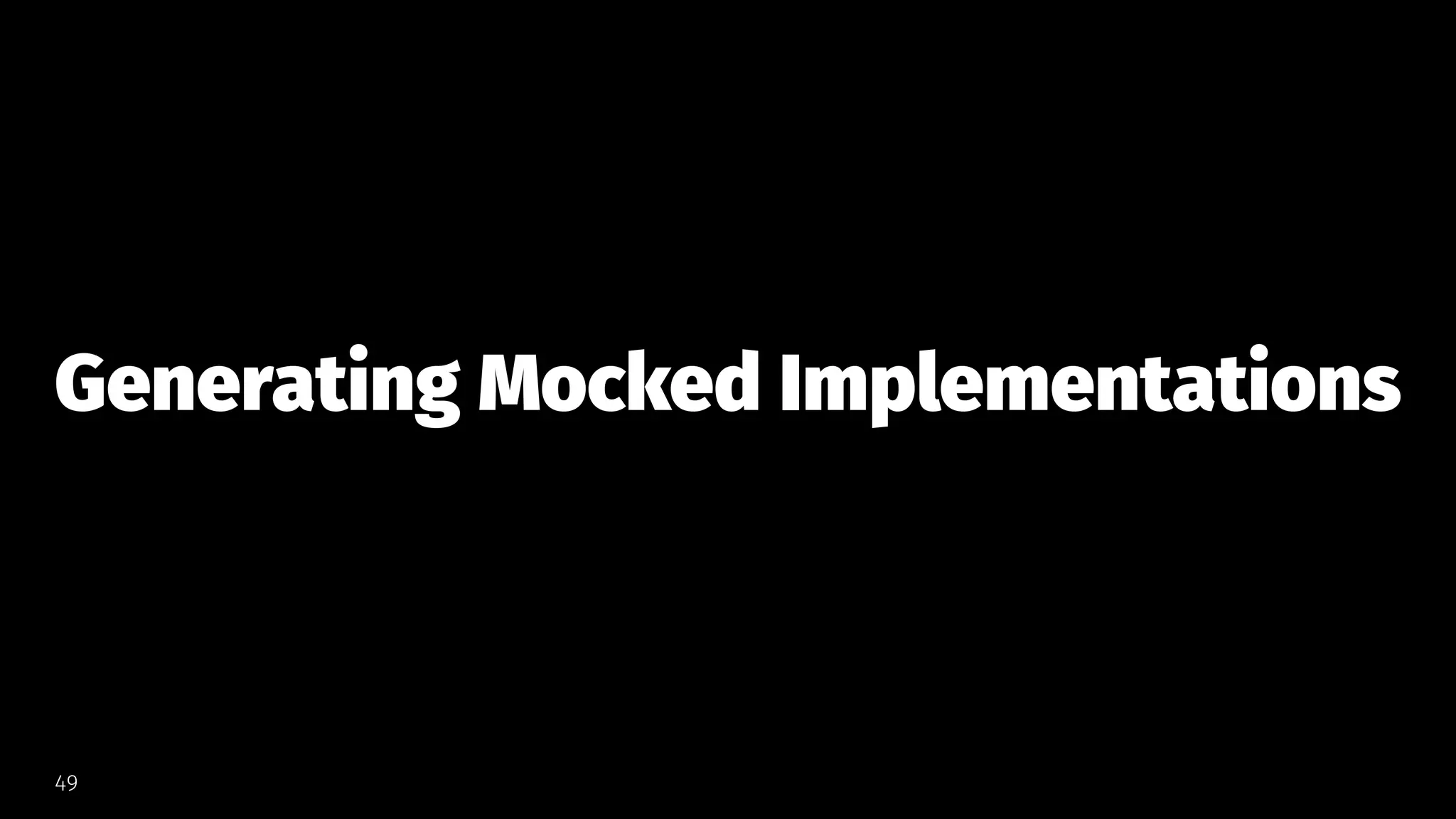

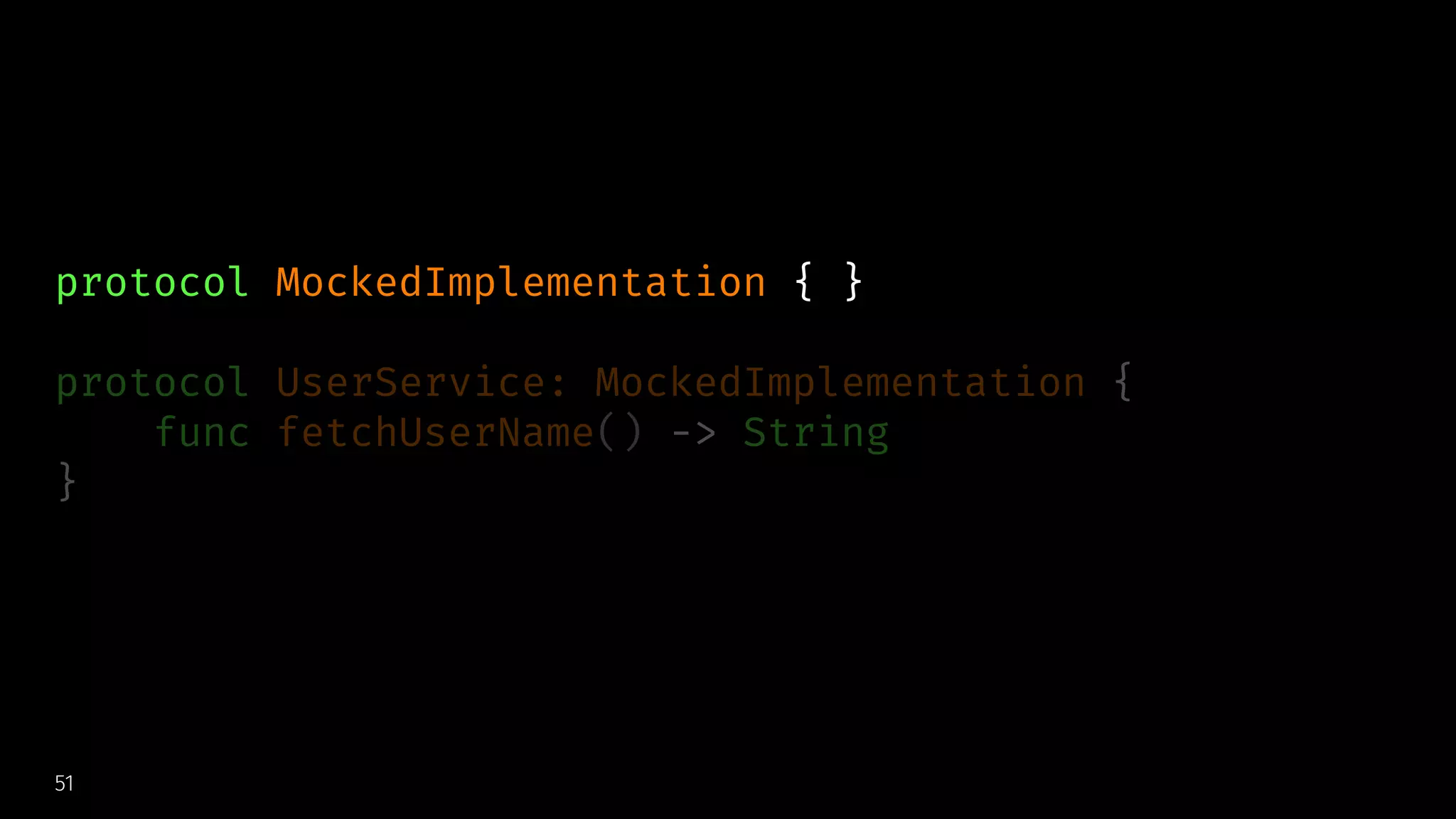

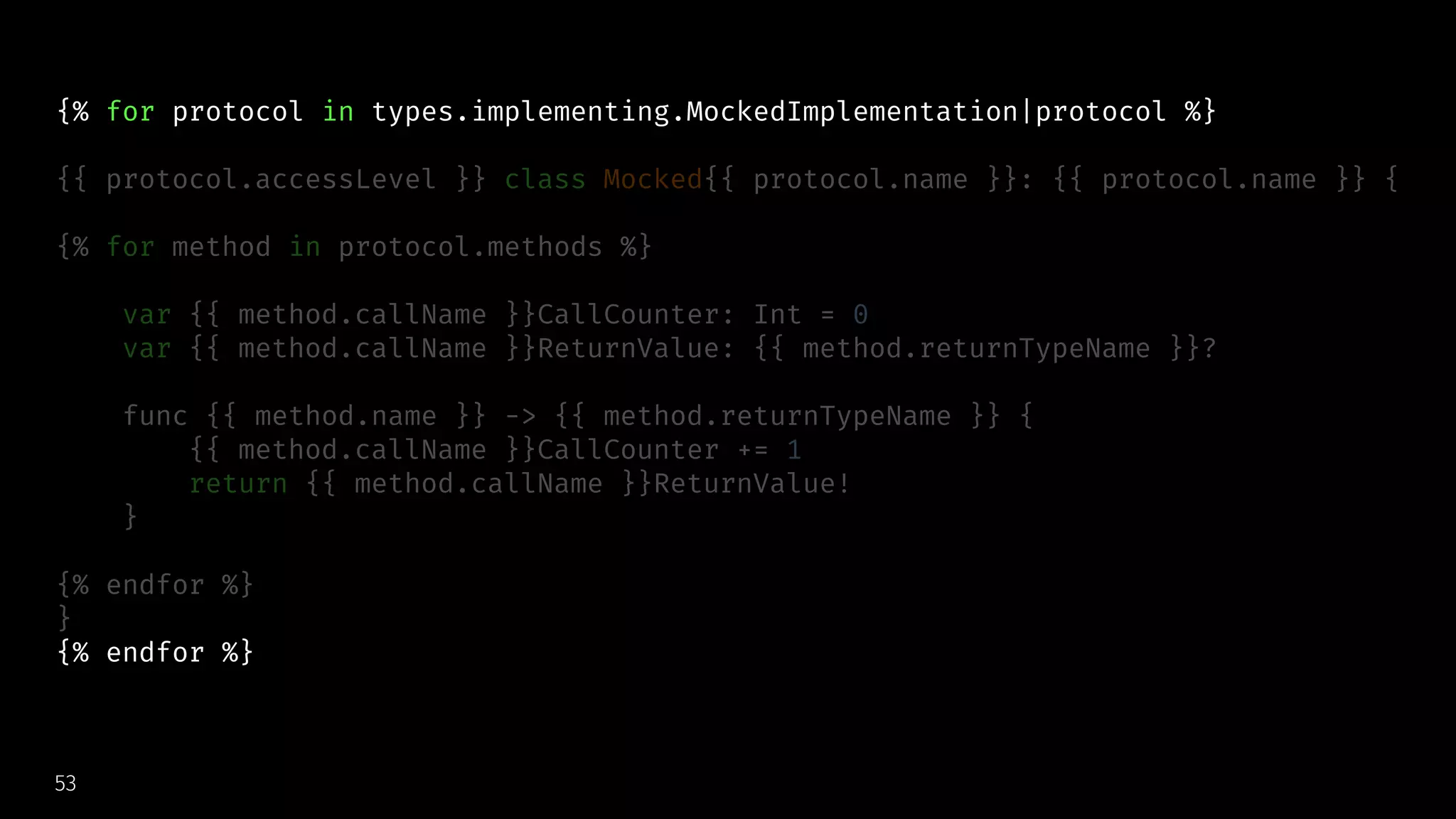
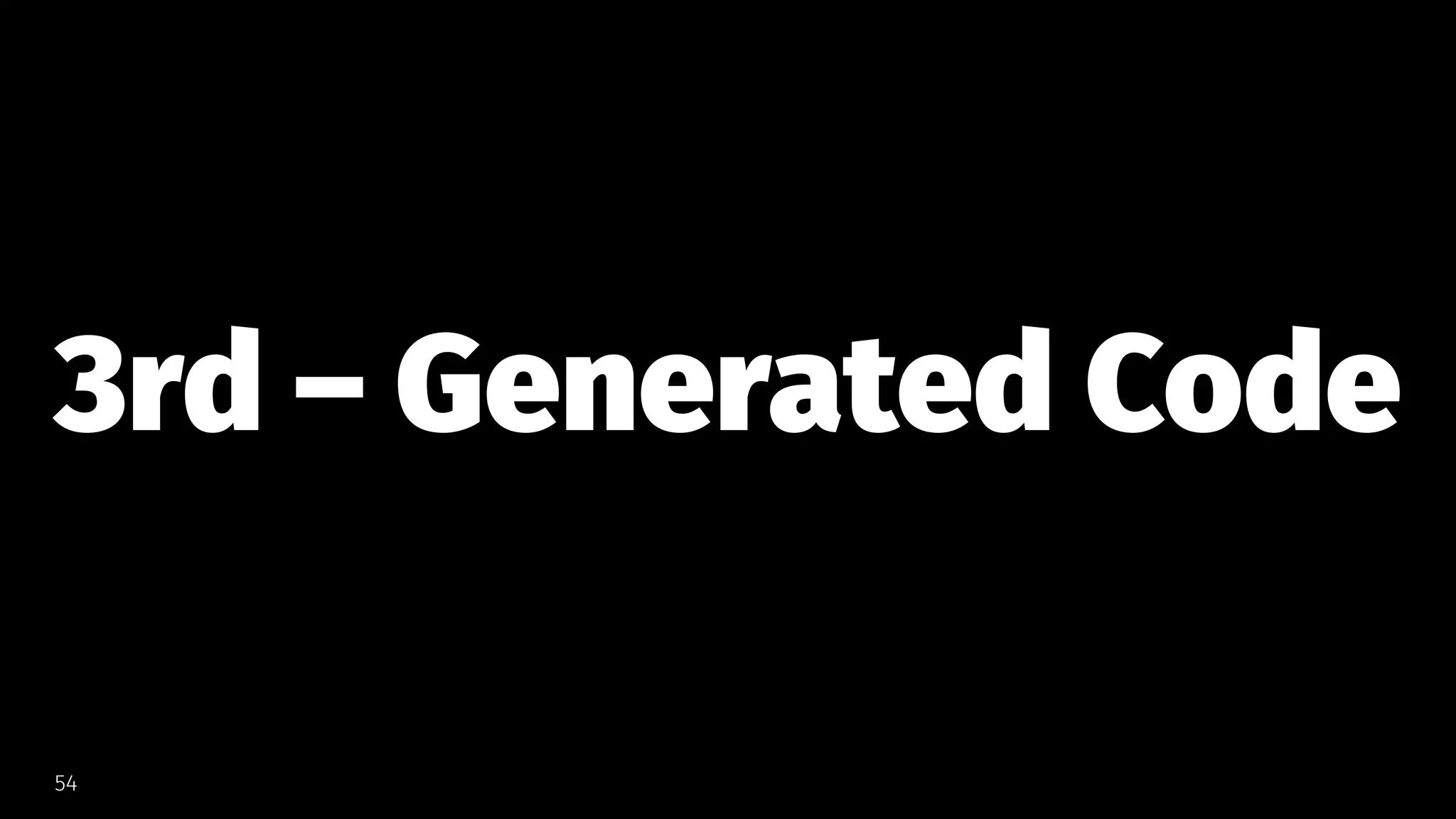
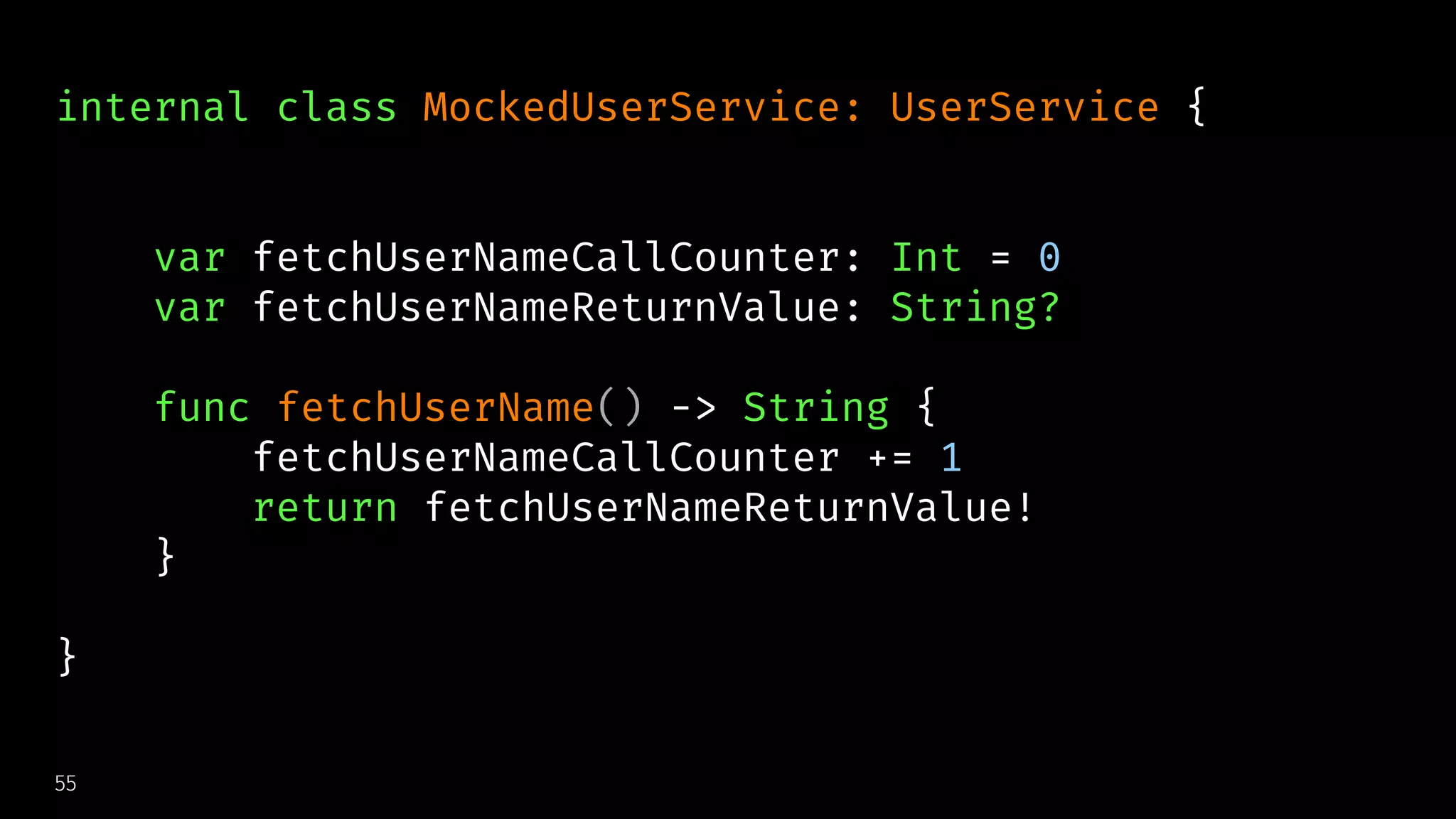

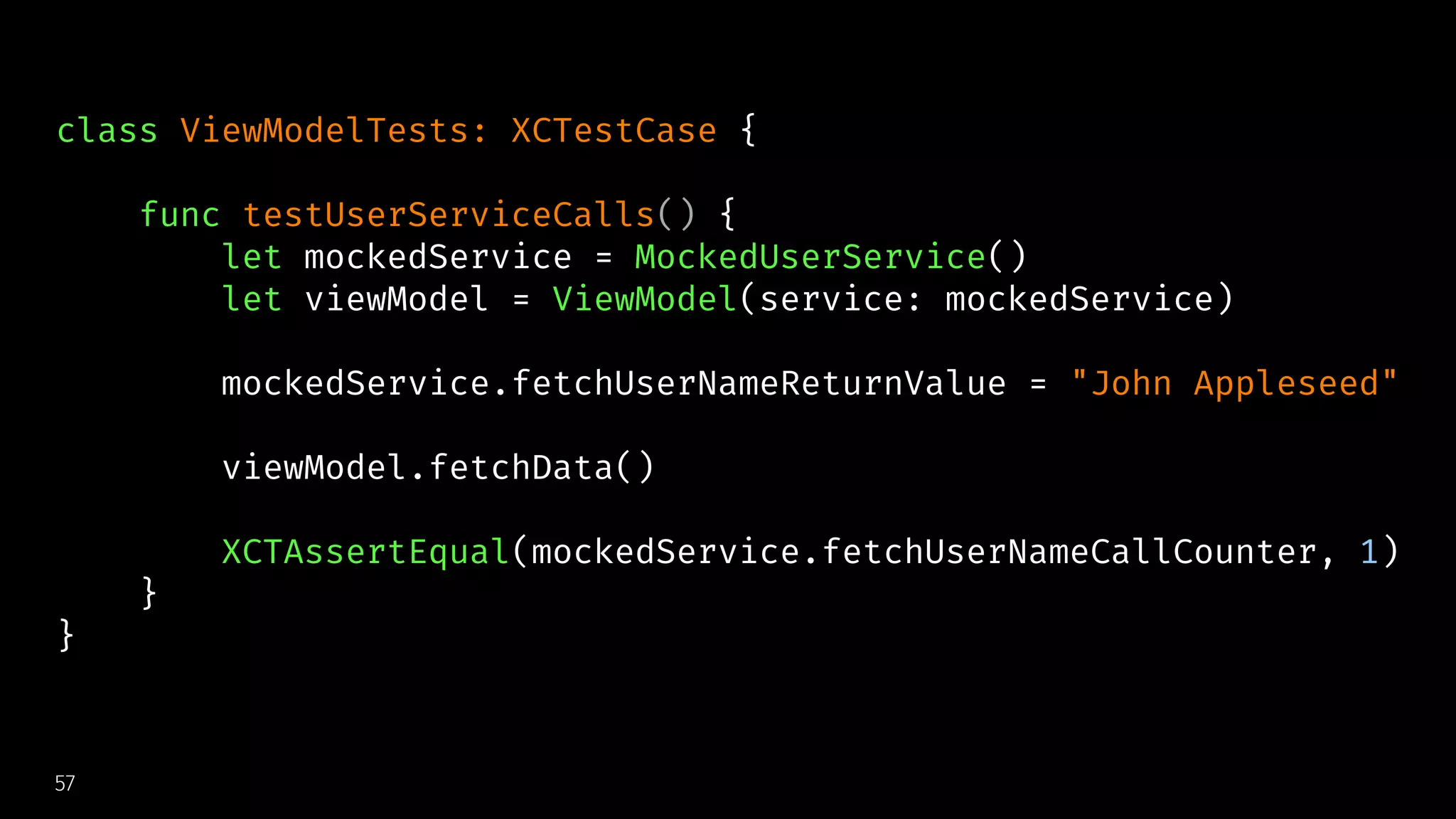

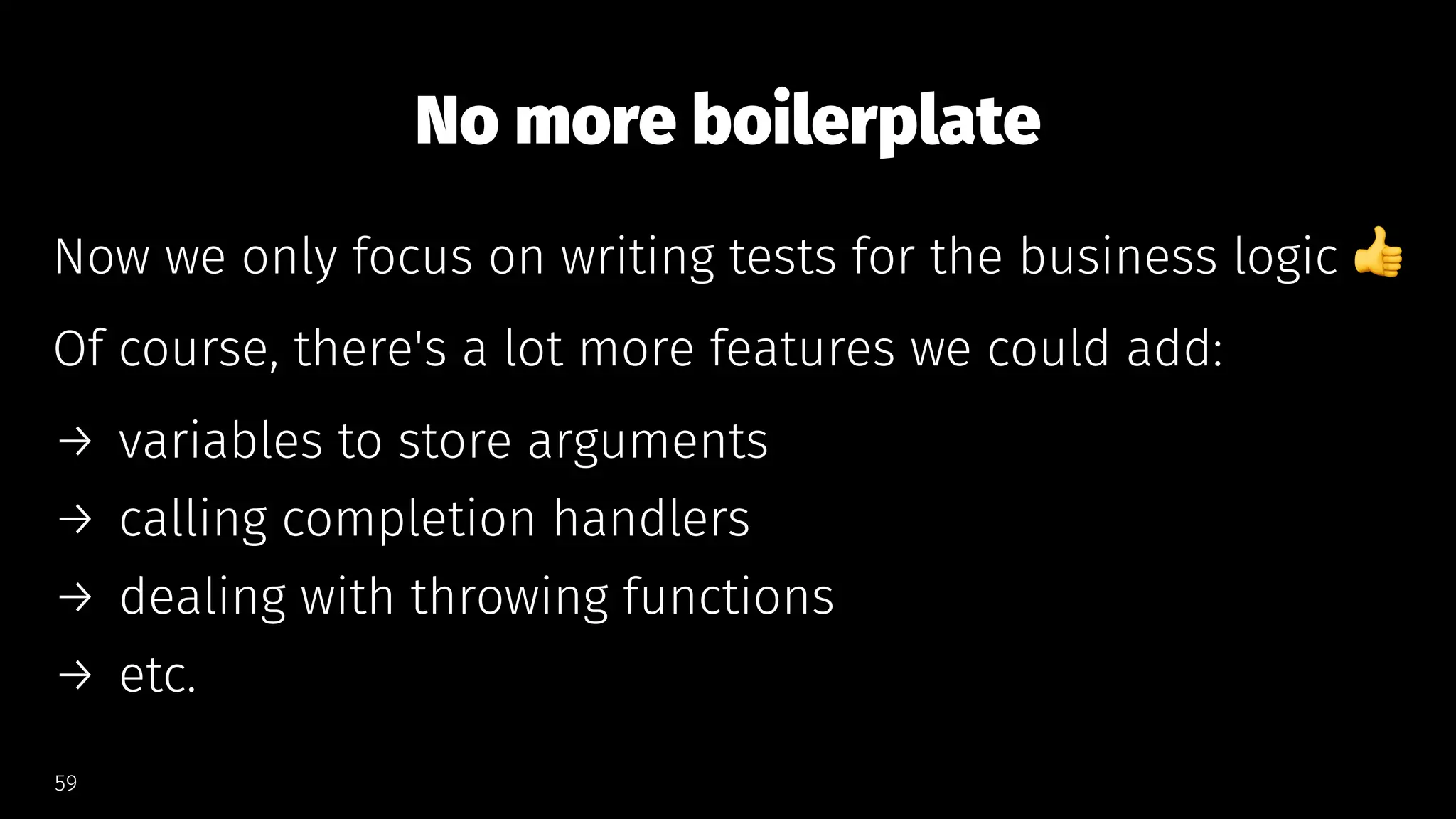
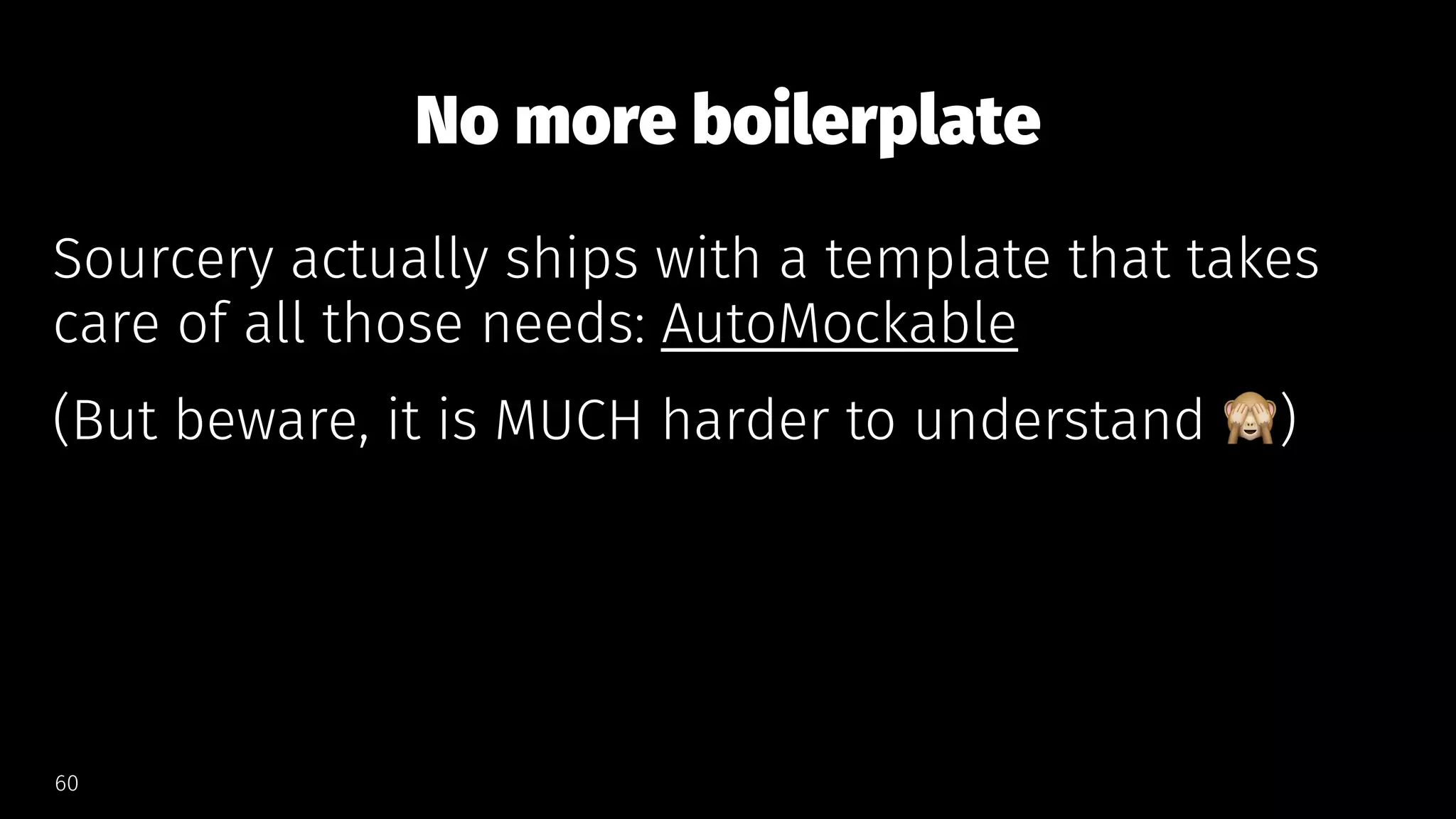
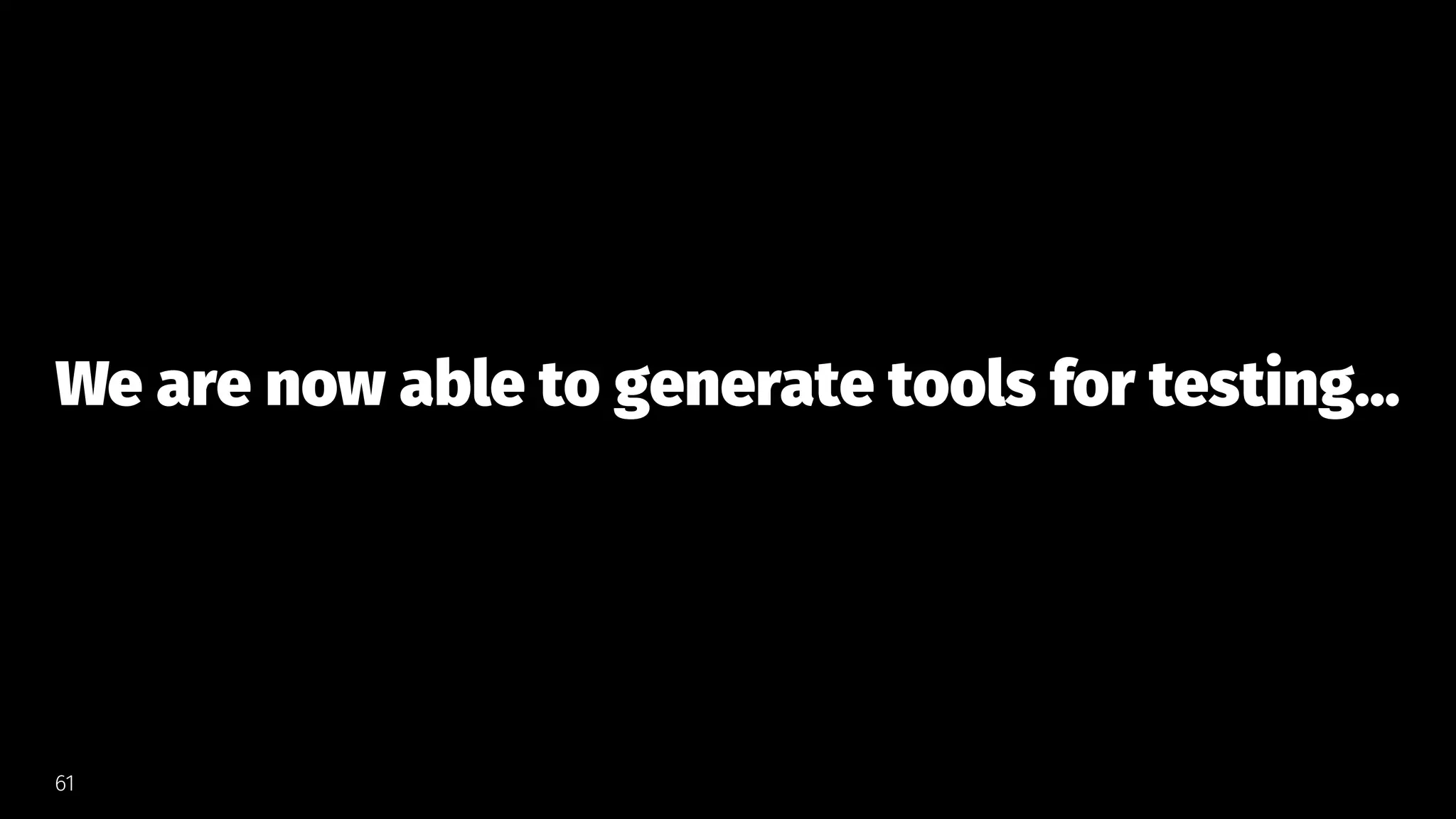

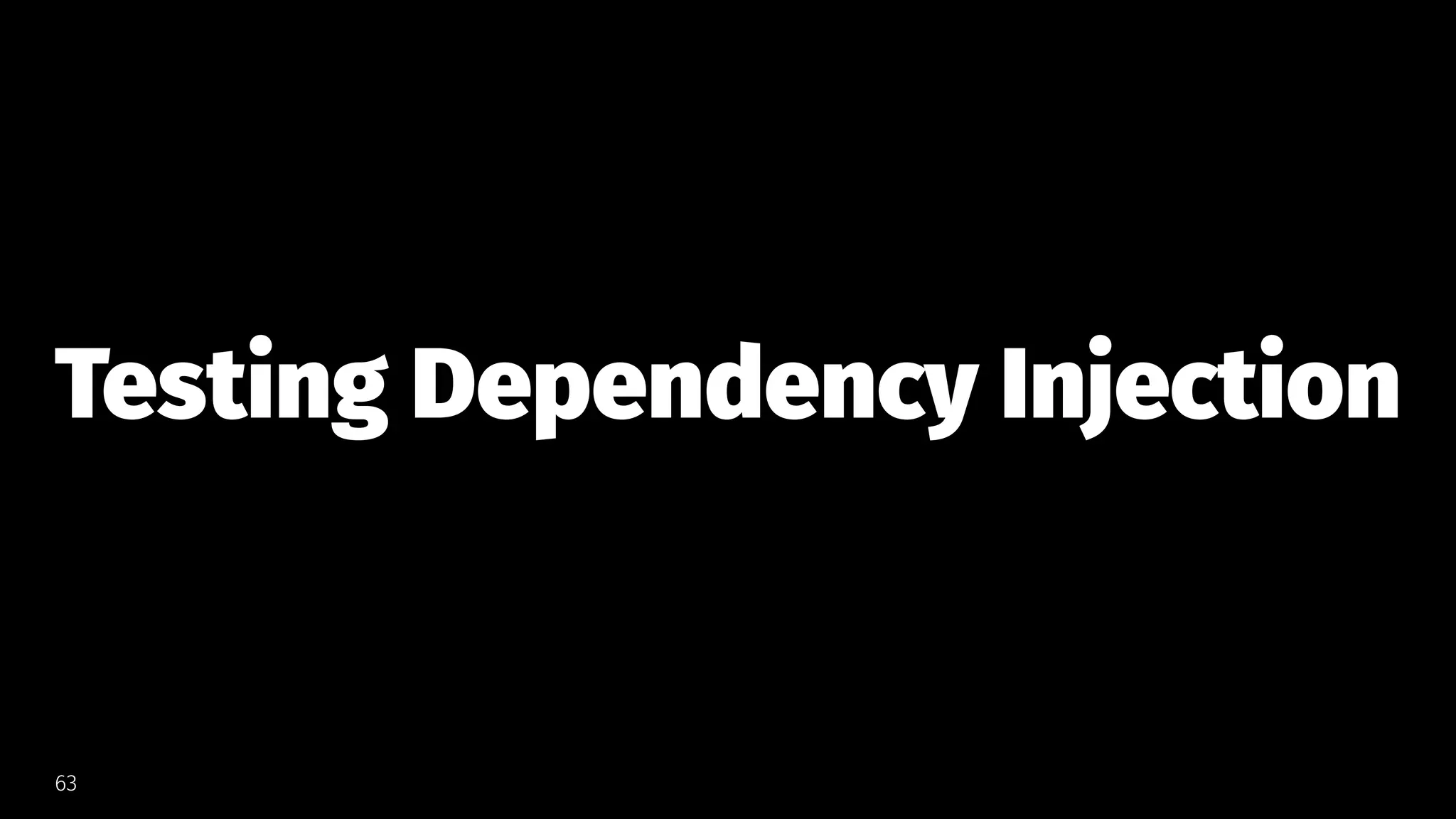
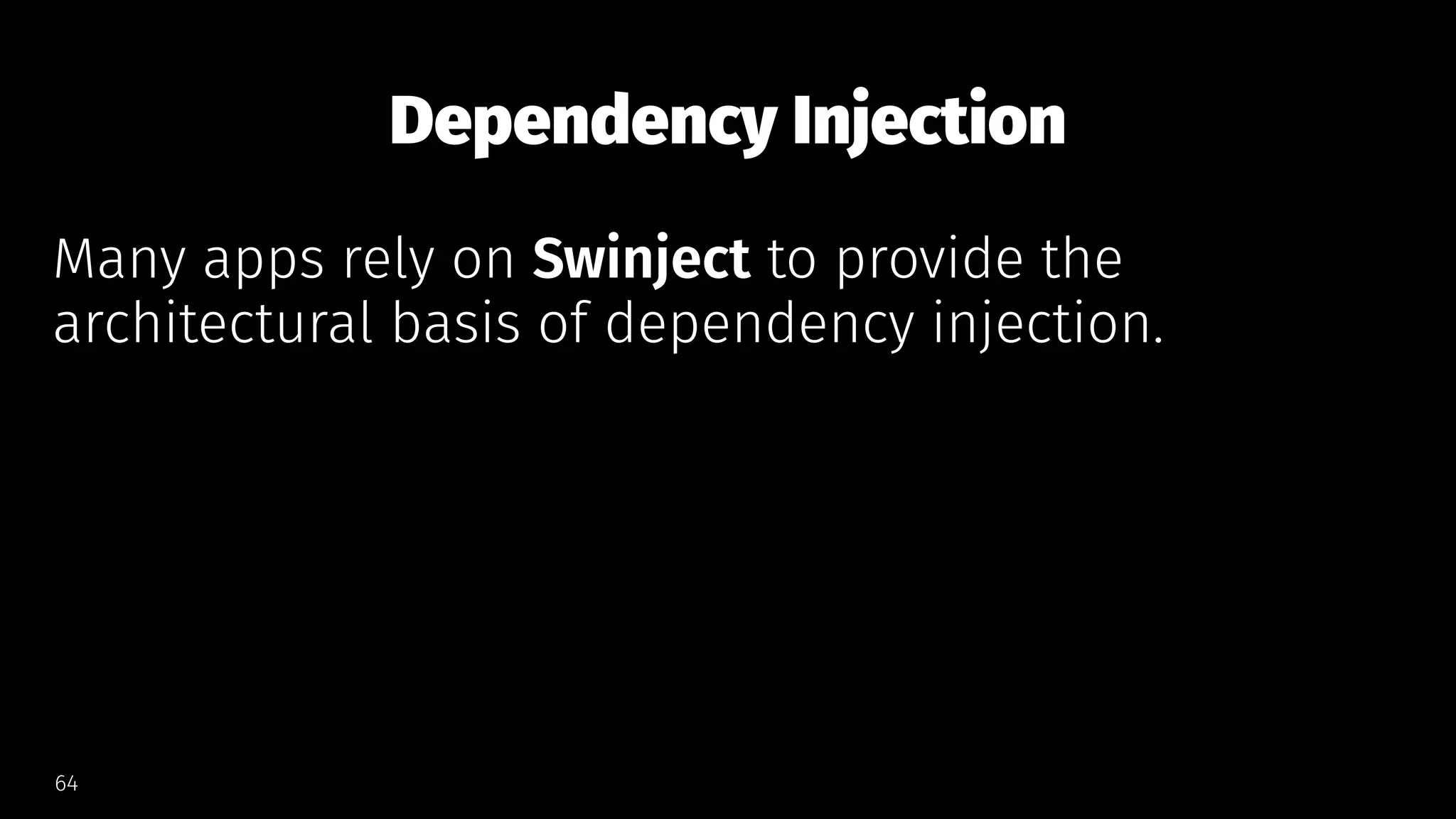
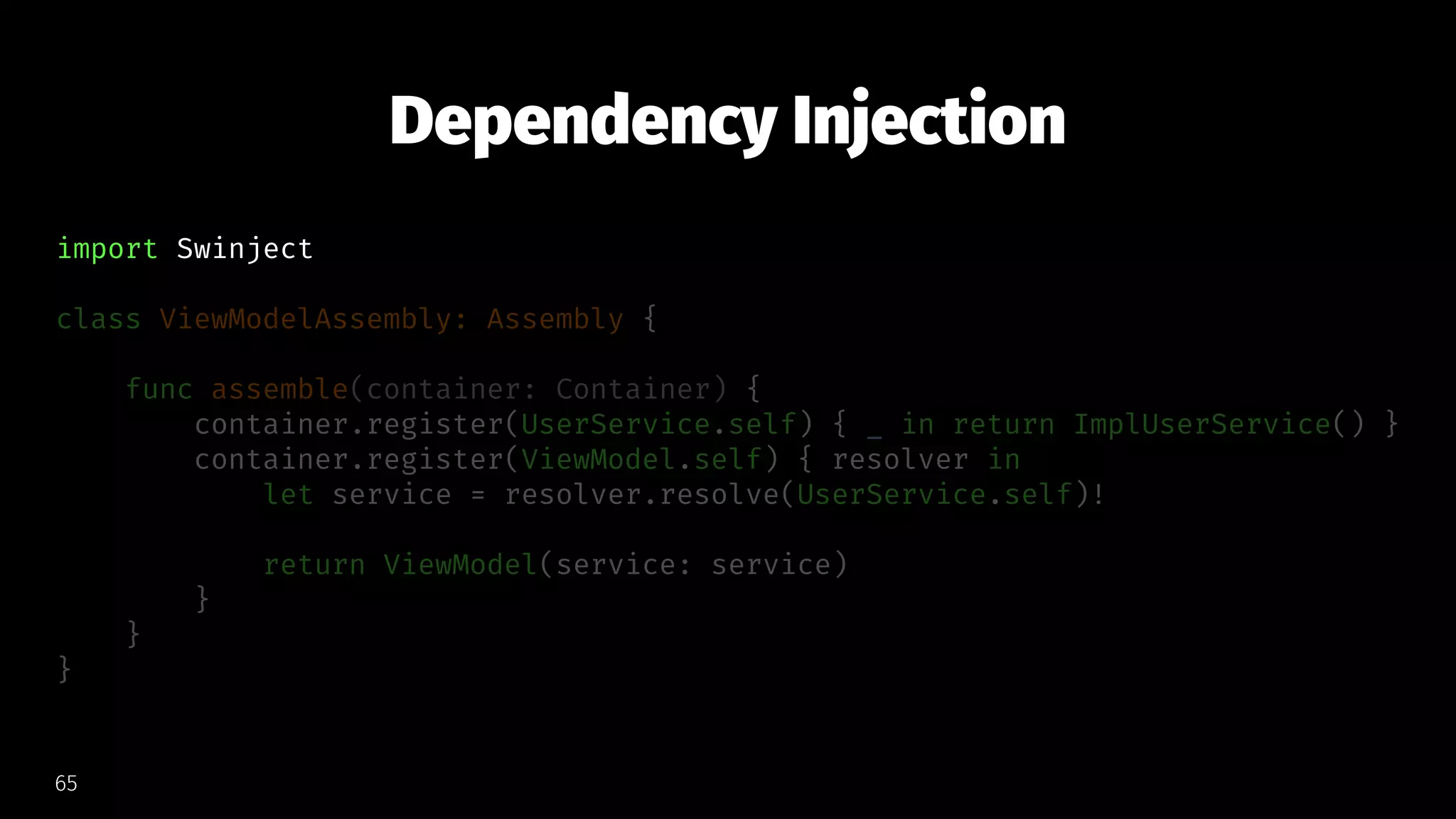
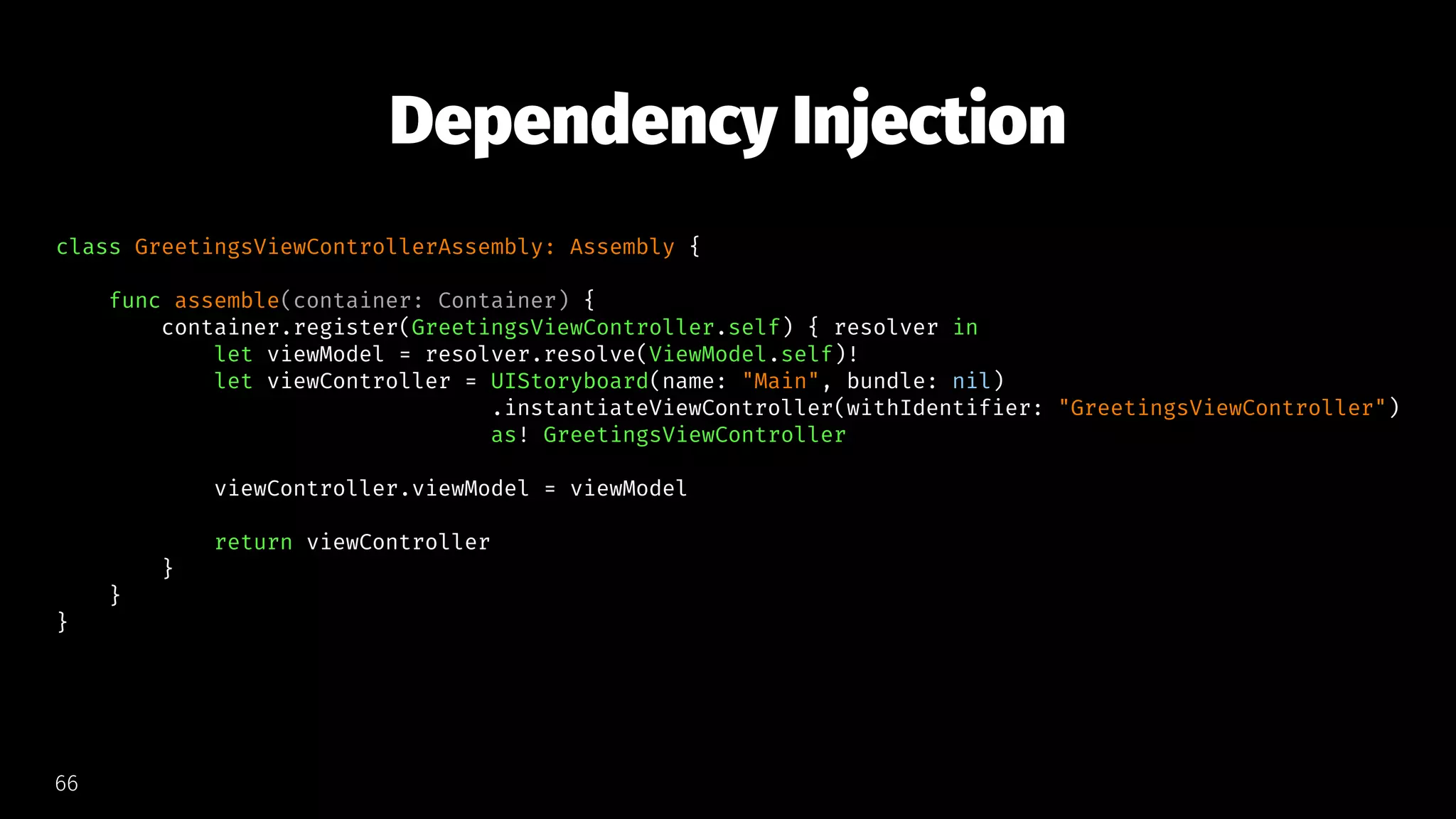
![Dependency Injection
struct ViewControllerFactory {
static var greetingsVC: GreetingsViewController {
let assembler = Assembler([ViewModelAssembly(), GreetingsViewControllerAssembly()])
return assembler.resolver.resolve(GreetingsViewController.self)!
}
}
67](https://image.slidesharecdn.com/mobos-2020-taking-the-boilerplate-out-of-your-tests-with-sourcery-200531084734/75/Taking-the-boilerplate-out-of-your-tests-with-Sourcery-67-2048.jpg)

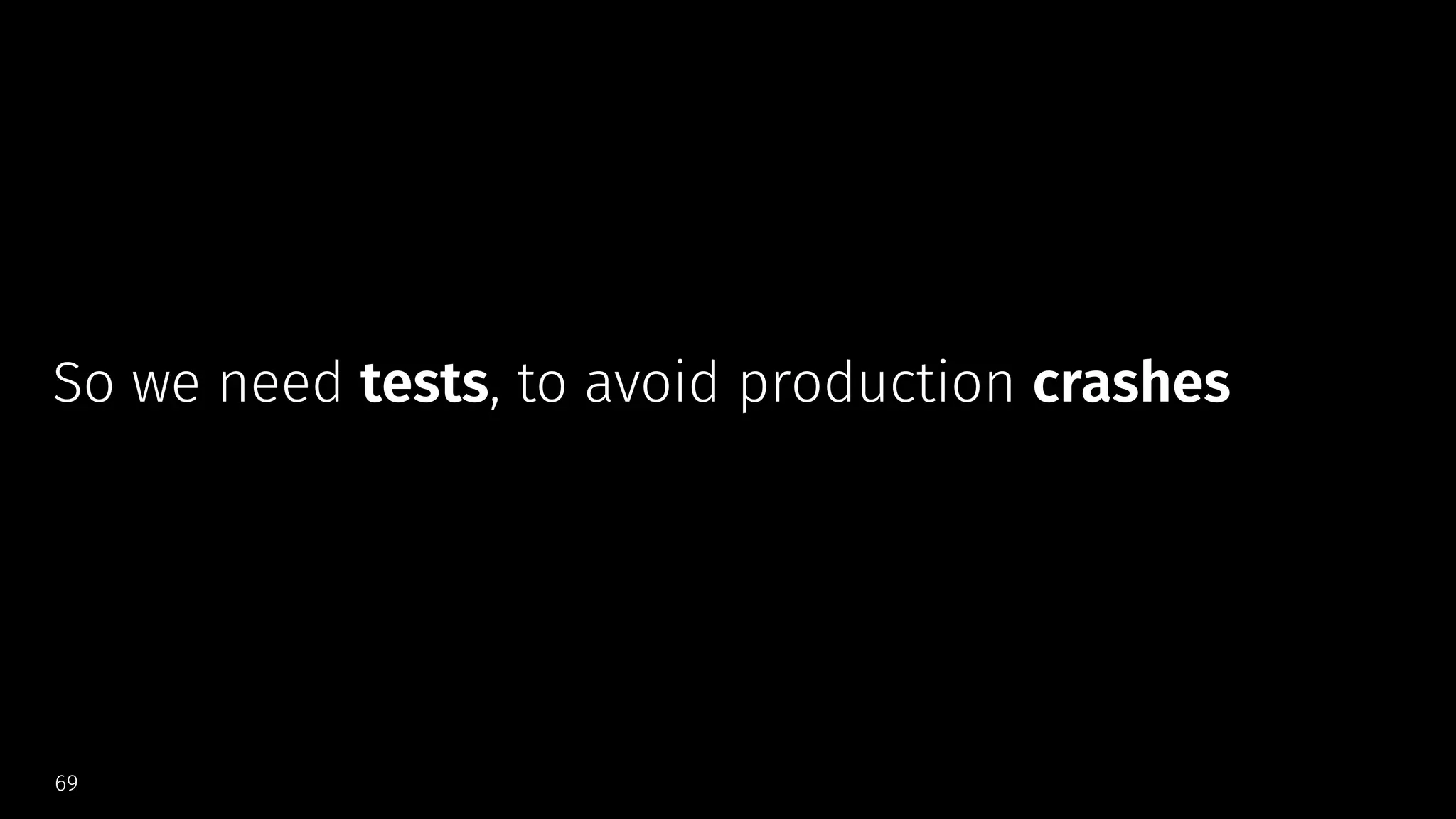
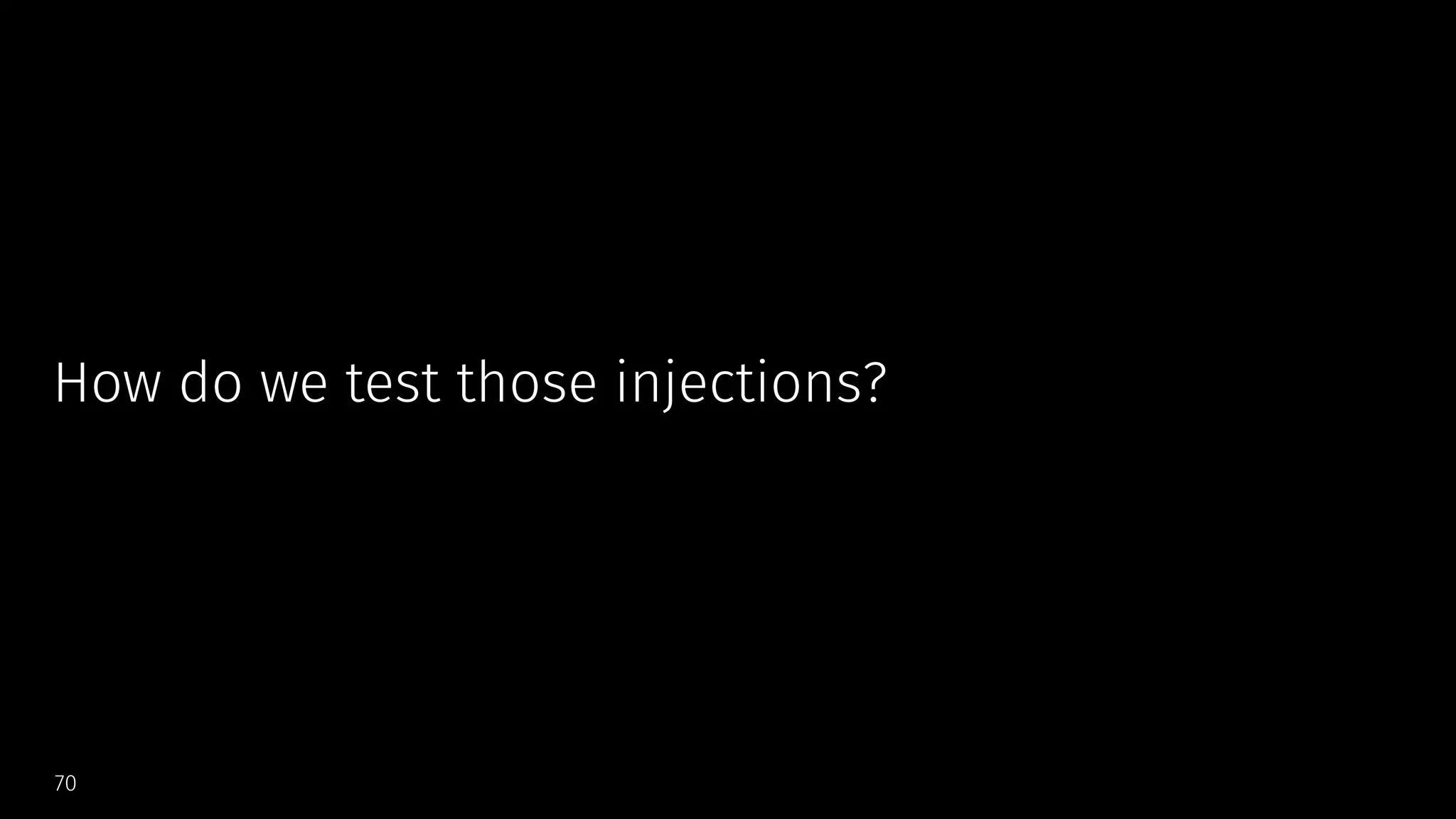
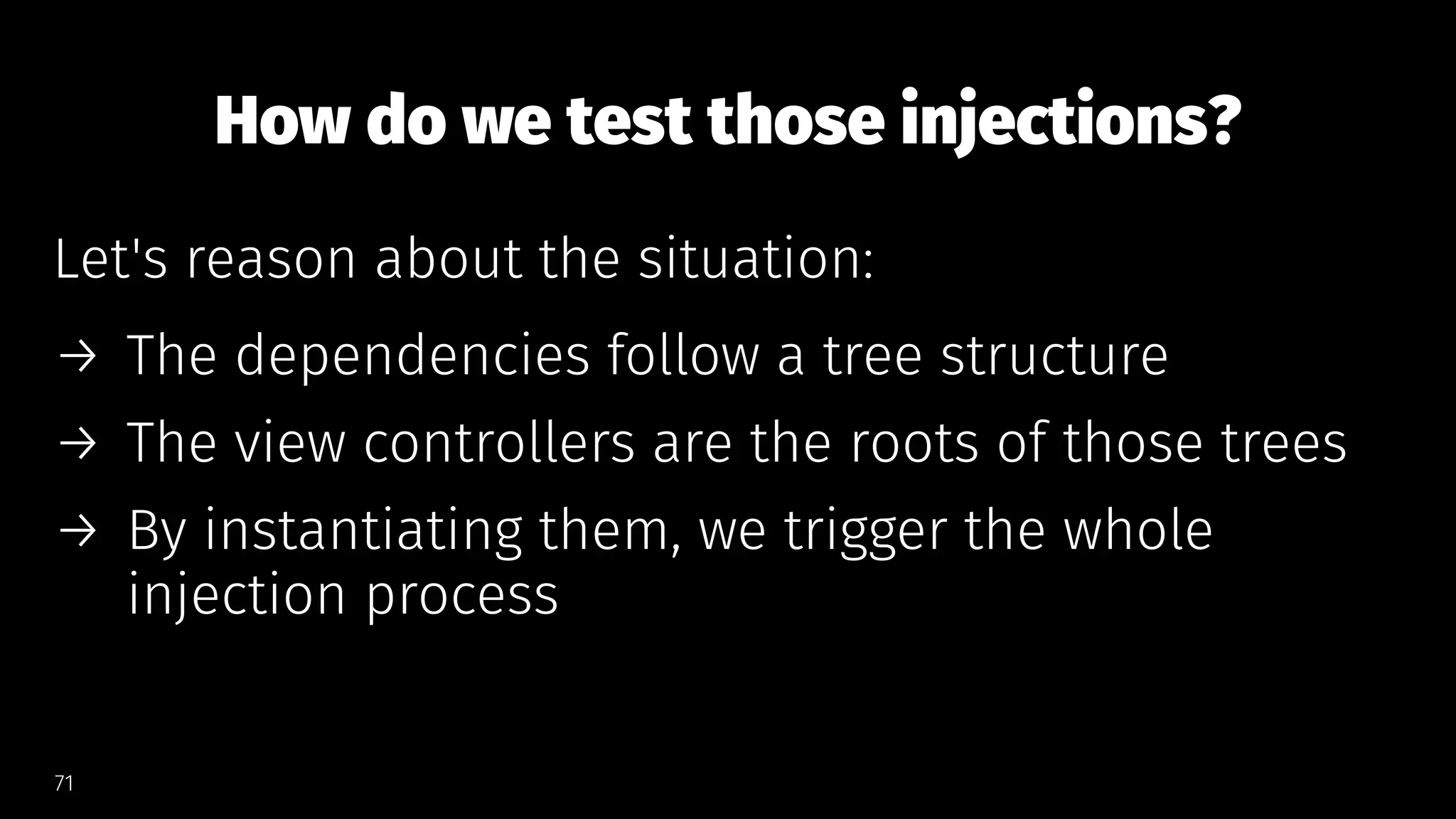
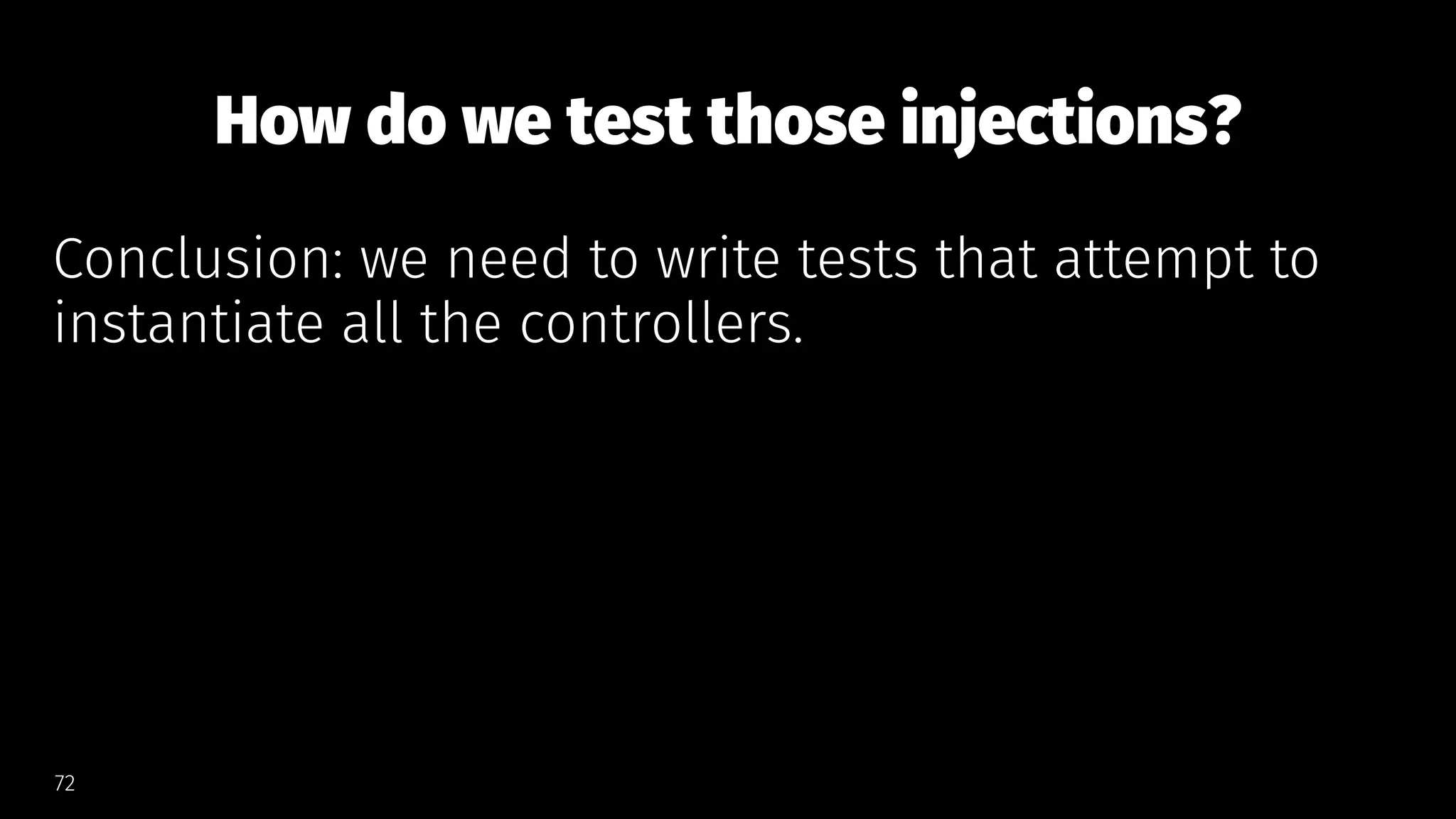

![Sourcery Template
import XCTest
@testable import YourApp
class DependencyInjectionTests: XCTestCase {
func testDependencyInjection() {
{% for variable in type["ViewControllerFactory"].staticVariables %}
_ = ViewControllerFactory.{{ variable.name }}
{% endfor %}
}
}
74](https://image.slidesharecdn.com/mobos-2020-taking-the-boilerplate-out-of-your-tests-with-sourcery-200531084734/75/Taking-the-boilerplate-out-of-your-tests-with-Sourcery-74-2048.jpg)
